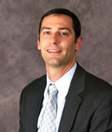
Zachary Calo is Associate Professor of Law at the Valparaiso University School of Law, where he has taught since 2007. He previously practiced banking and commercial law in Washington, DC. He holds a JD from the University of Virginia School of Law, a BA and MA in History from The Johns Hopkins University, a PhD in History from the University of Pennsylvania, and is a PhD candidate (exp. 2011) in Religious Studies at the University of Virginia. He has been a visiting fellow at the Brookings Institution, the Pew Forum on Religion and Public Life, and the Institute for Humane Studies. He serves on the Organizing Committee of the AALS Law and Religion Section and is a member of the Editorial Board of the European Journal of Law and Religion. He is currently writing books on American Catholic social thought, Richard Hooker, human dignity and human rights, and law and secularism.
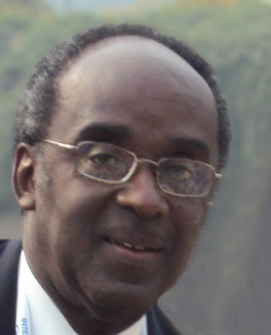
Justice Date-Bah’s career has spanned academia, international civil service, and service as a Justice of the Supreme Court of Ghana since 2003. He was a Special Legal Adviser at the Commonwealth Secretariat, London (1984 – 2003). Before that, he taught law at the Universities of Ghana, Nairobi, Kenya, and Calabar, Nigeria, with visiting stints at Oxford and Yale Universities (1969 – 1984). He was received an LLB from the University of Ghana (First Class Honours, 1962-65), an LLM from Yale Law School (1966-1967), and a PhD from the London School of Economics (1967-1969). He qualified as a legal practitioner in Ghana in 1966 and has published extensively.
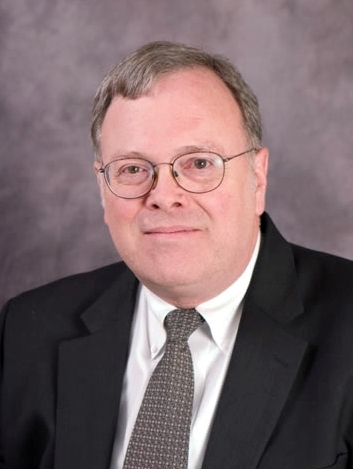
International Center for Law and Religion Studies,
J. Reuben Clark Law School, Brigham Young University
W. Cole Durham, Jr., is Director of the International Center for Law and Religion Studies, a position he has held since the Center was officially organized on January 1, 2000. A graduate of Harvard College and Harvard Law School, where he was a Note Editor of the Harvard Law Review and Managing Editor of the Harvard International Law Journal, Professor Cole Durham has been heavily involved in comparative law scholarship, with a special emphasis on comparative constitutional law. He is currently the President of the International Consortium for Law and Religion Studies (ICLARS), based in Milan, Italy, and a Co-Editor-in-Chief of the Oxford Journal of Law and Religion. From 1989 to 1994, he served as the Secretary of the American Society of Comparative Law, and he is also an Associate Member of the International Academy of Comparative Law in Paris—the premier academic organization at the global level in comparative law. He served as a General Rapporteur for the topic "Religion and the Secular State" at the 18th International Congress of Comparative Law held in July 2010. He has also served as Chair both of the Comparative Law Section and the Law and Religion Section of the American Association of Law Schools. Professor Durham has taught at the Brigham Young University Law School since 1976, and he was awarded the honorary designation of University Professor there in the fall of 1999. Since 1994, he has also been a Recurring Visiting Professor of Law at Central European University in Budapest, where he teaches comparative constitutional law to students from throughout Eastern Europe, and increasingly from Asia and Africa as well. He has also been a guest professor in Gutenberg University in Mainz, Germany and at the University of Vienna. In January 2009, he was awarded the International First Freedom Award by the First Freedom Center in Richmond, Virginia.
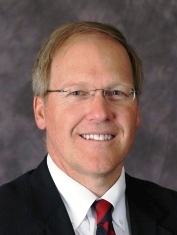
As Managing Director of the International Center for Law and Religion Studies, Robert Smith oversees activities including Center-sponsored conferences worldwide, the Annual International Law and Religion Symposium in Provo, academic publications, international law and religion initiatives, and law-reform consultations. Professor Smith is a co-author, with W. Cole Durham, Jr. and William Bassett, of the treatise Religious Organizations and the Law, published in annual updates by Thomson West. Professor Smith has also co-authored numerous articles on religious freedom and other legal topics, is a speaker at international conferences on religious topics, and teaches a course on the taxation of religious organizations at the J. Reuben Clark Law School. Before joining the law school, Professor Smith was Executive Vice-President and General Counsel to CaseData Corporation, a shareholder and chairman of the Corporate and Tax department at the law firm of Kirton & McConkie in Salt Lake City, member of law firms in Washington, D.C. and Chicago, Illinois, and a CPA for Deloitte & Touche. Professor Smith received a BS in accounting from BYU, an MBA magna cum laude from the University of Notre Dame, and a JD magna cum laude from the J. Reuben Clark Law School, where he was named to the Order of the Coif and served as Editor-in-Chief of the law review.
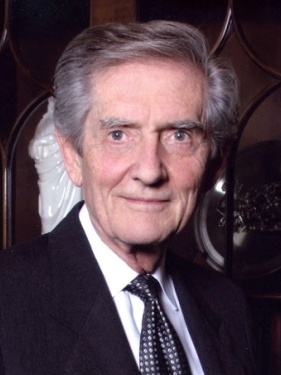
Judge Wallace is native of San Diego, a Navy veteran, and a 1955 graduate of the University of California Boalt Hall School of Law. He has devoted more than fifty years to the law, as partner in a San Diego law firm, as a United States District Judge for the Southern District of California, and as member, and from 1991-1996 Chief Judge, of the United States Court of Appeals for the Ninth Circuit. Since assuming Senior Judge status in 1996, Judge Wallace has spent much of his time traveling every continent of the world to promote the rule of law in developing countries. A prolific writer, lecturer, and teacher, he has taught courses in judicial administration in the United States and throughout the world and has consulted with more than fifty judiciaries worldwide. He developed the concept of the Conference of Chief Justices of Asia and the Pacific and originated the idea and developed the concept for the American Inns of Court. Throughout his long and distinguished career of professional, church, and community service, Judge Wallace has received a great many honors, recognitions, and awards, including the 2005 Edward J. Devitt Distinguished Service to Justice Award, generally regarded as "the most prestigious honor conferred on a member of the federal judiciary," and the 2009 Distinguished Service Award for Religious Freedom from the International Center for Law and Religion Studies.
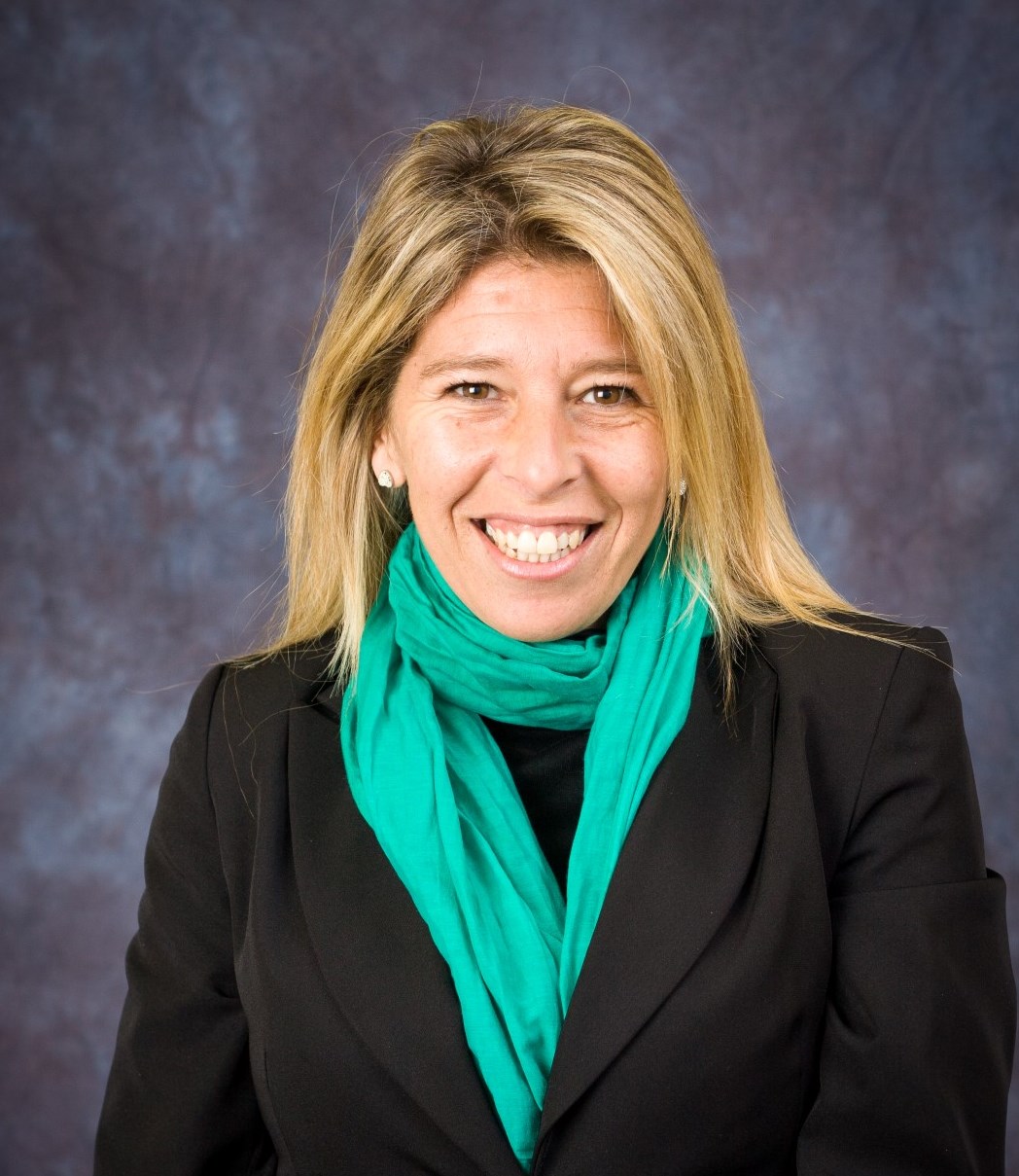
Dr. Ximena Guzmán, an attorney, is the Chief of the Department of Entry Permit Processing at the National Directorate of Immigration. She has held various positions in the Immigration Directorate throughout her career.
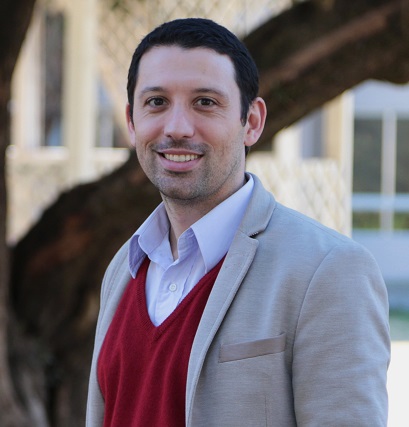
Juan Martin Vives is a lawyer (Universidad Nacional de Córdoba) with a degree in Law Teaching (Universidad Adventista del Plata) and an LLM (Universidad Austral). He is PhD student in Public Global Law (Universitat Autònoma de Barcelona). Currently, he works as Secretary of Student Management at Universidad Adventista del Plata (Argentina). Formerly he was the Legal Affairs Director at the same university. He lectures in both undergraduate and graduate courses, he is currently teaching the subject "Religion, Law and the State" at the Theology Department. He has written several articles and often speaks on issues related to law and religion, religious liberty and church and state relations. He is an unsuccessful soccer player, but he has been happily married for five years. He does not have any children yet.
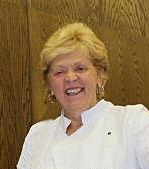
Françoise Tulkens has a Doctorate in Law, a Master’s Degree in Criminology and a Higher education teaching certificate (agrégation de l’enseignement supérieur) in Law. She was a Professor at the University of Louvain (Belgium) and has taught, in Belgium as well as abroad – as a visiting professor at the Universities of Geneva, Leuven, Ottawa, Paris I, Rennes, Strasbourg and Louisiana State University, in the fields of general criminal law, comparative and European criminal law, juvenile justice and human rights protection systems. She has authored many publications in the areas of human rights and criminal law. She holds honorary doctorates from the Universities of Geneva, Limoges, Ottawa and Ghent. From November 1998 to September 2012, she was a Judge in the European Court of Human Rights, serving as Section President from January 2007 and as Vice-President of the Court from February 2011. She has been an Associate Member of the Belgian Royal Academy since 2011. In September 2012, she took up an appointment as a member of the Kosovo Human Rights Advisory Panel.
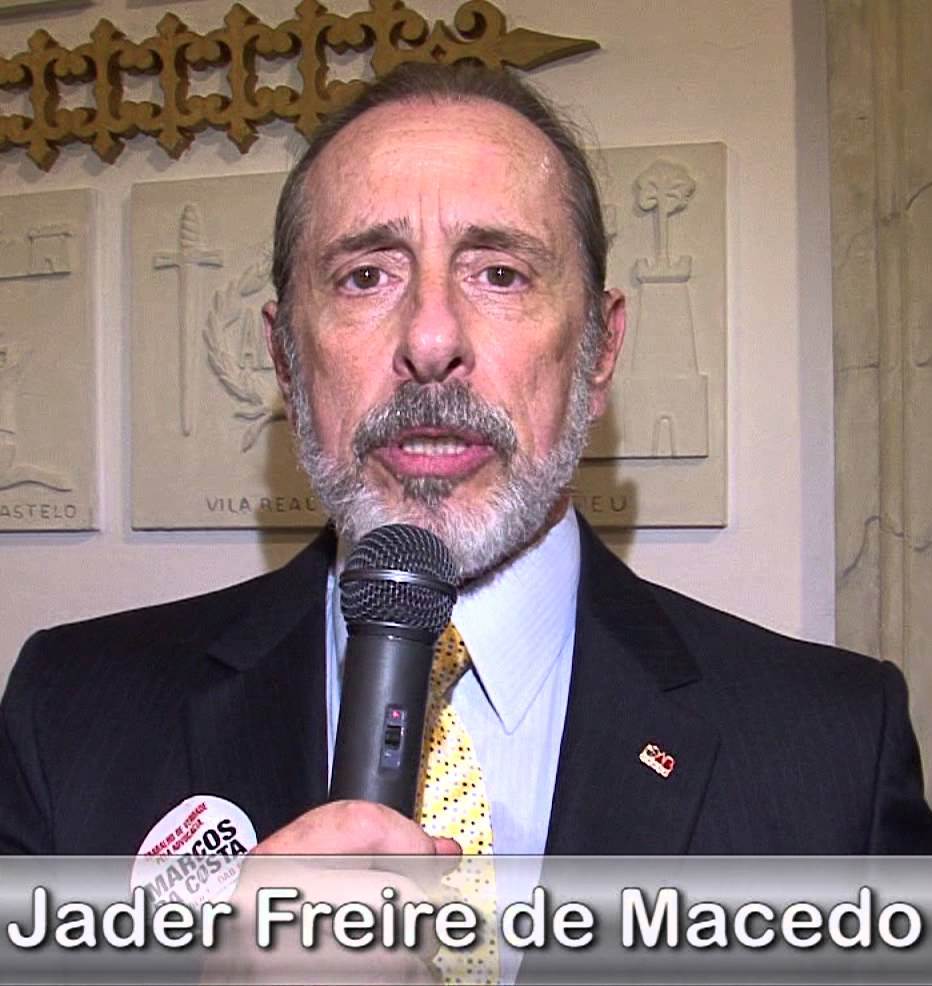
Dr. Macedo graduated from Faculdade Católica de Direito de Santos in 1977 and then passed the bar exam in 1978. Dr. Macedo has a degree in business administration from the Universidade Santa Cecília (1976) and a Master's Degree in public law from the Pontifícia Universidade Católica (1980). He worked as an attorney at his own firm after passing the bar. Since 2000 he has worked as a judge on the Ethics Court of the Bar of Brazil in the state of São Paulo. In 2009 he co-founded the São Paulo State Law and Religious Liberty Commission of the Bar of Brazil; he is currently the vice-president. He is an expert in human rights and religious freedom. He has spent over ten years working in anti-discrimination matters.
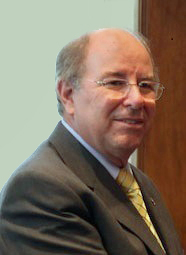
Edson Rosa has helped organize International Religious Liberty Association (IRLA) Religious Freedom World Festivals both Lima Peru in 2009, and in São Paulo Brazil in 2013. He is in charge of public relations for South America at the Communication Network Novo Tempo.
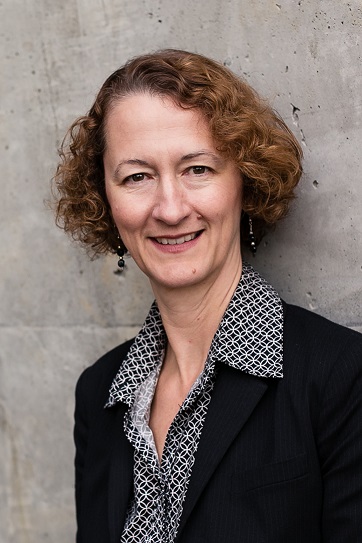
Janet Epp Buckingham is an associate professor at Trinity Western University and the Director of the Ottawa-based Laurentian Leadership Centre. She previously served as director, law and public policy for the Evangelical Fellowship of Canada. In 1986 Dr. Buckingham received her LLB from Dalhousie University. She clerked for Mr. Justice Barry Strayer of the Federal Court from 1986-1987. She has been called to the bar and practiced law in Nova Scotia and Ontario. Dr. Buckingham completed her LLD at the University of Stellenbosch, South Africa in 1998, with a dissertation comparing religious freedom in Canada and South Africa. Her book, Fighting Over God: a legal and political history of religious freedom in Canada, is forthcoming in Spring 2014.
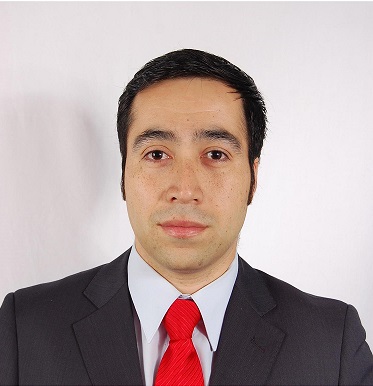
Gonzalo Guerrero is a lawyer. He received his law degree from Catholic University of Chile, majoring in Public Law (2009). He received a Master of Laws at the Pontifical Catholic University of Chile (2013). He has worked in the Legal and Legislative Division of the General Secretariat of the Presidency (2010-2012). He has been Assistant Professor of Legal History I and II (2009-2013) at the Pontifical Catholic University of Chile and Professor of Constitutional Law (2012-2013) at the Universidad Andrés Bello. He is the author of several publications in professional journals and currently serves as Chief of Staff to the Undersecretary General of the Presidency and as Director of the Chile Religious Affairs Office.
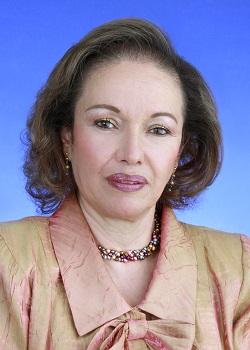
Maria Patricia Ariza is the Fourth Deputy Attorney before the Council of State of the Office of the Attorney General of the Nation. The Attorney General's Office is a public institution in Colombia that represents citizens before the state. In her capacity she deals with matters related to human rights. She has a close professional relationship with Dr. Ordoñez Maldonado, the current Attorney General of the Republic of Colombia. Dr. María Patricia Ariza is a lawyer and holds several specialties in Law. She has held various political positions and currently she is also a consultant in the Philosophy of Law, Gender, Judicial Process, Judicial Interpretation, and Human Rights.
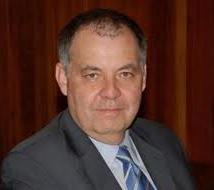
Alejandro Ordóñez Maldonado is the Attorney General of the Republic of Colombia. He is the principal attorney for the Republic of Colombia. He is a professor of law and has made a career of supporting human rights. He has a Doctor of Law degree and a Political Science degree, with specialization in Administrative Law. He has been recognized as the Best Magistrate of the Administrative Tribunal of Santander, Medal of Jose de Marquez in the gold category and Best Magistrate of the Council of State.
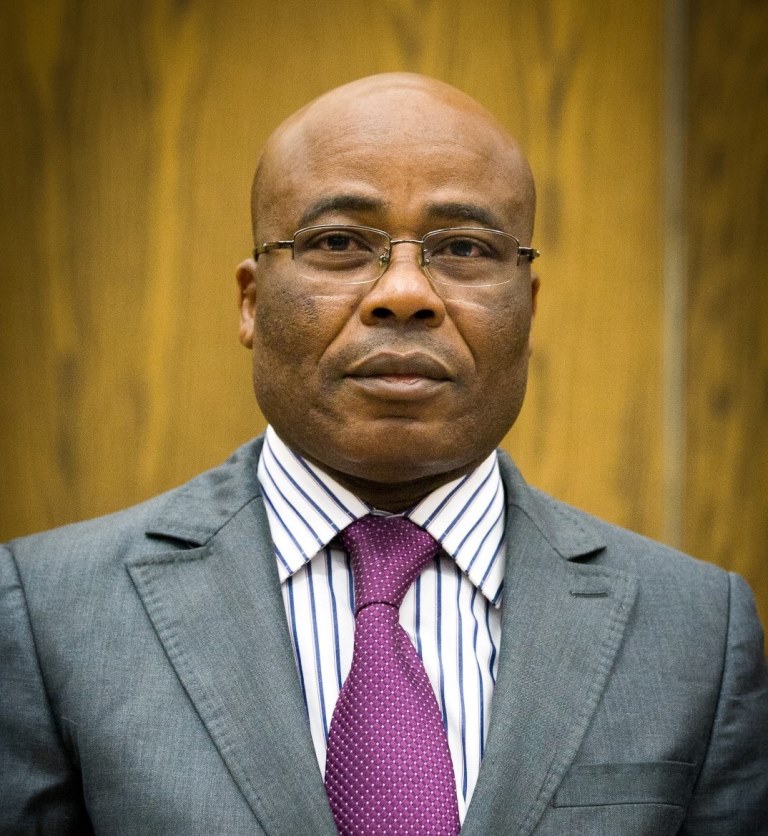
Mr. Kouadio is the Chief of Staff, Chargé of Territorial Administration of the Ministry of the Interior. His main assignment is to head the national territory. He is also directly in charge of the documents digitalizing project. He graduated from the Ecole Nationale d’Administration(1985) du Cycle Supérieur de l’E.N.A (Abidjan). He has a Masters Degree in Public Law from Faculté de Droit – Université d’Abidjan(1982).
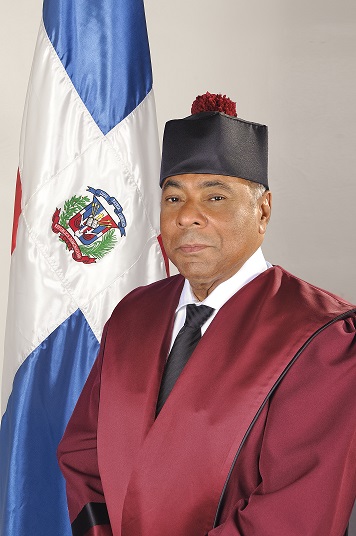
Dr. Guevara is the President of the Constitutional Tribunal in the Dominican Republic. He also served as Minister of Labor from 2000 to 2004 and as a Senator from 1998 to 2000. In addition, he has served as a Consul General in New York City and as an Ambassador for the Dominican Republic to England, Ireland, Yugoslavia and several other European countries. Dr. Guevara has also been actively engaged in academia since 1970 and served as the Dean of the Law School at Pontificia Universidad Catolica Madre y Maestra.
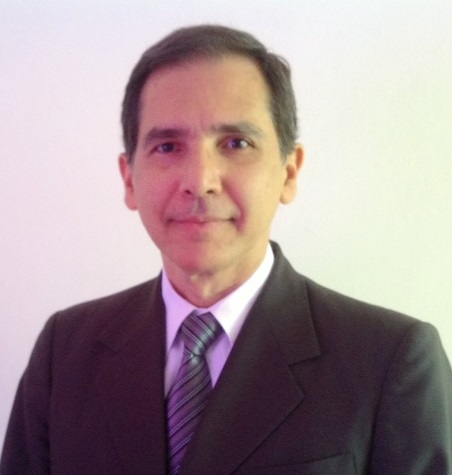
Dr. Miguel Núñez Duran was born in Santo Domingo, Dominican Republic, on April 1st, 1963. Mr. Núñez obtained his JD and LL M degrees in 1986 from the Autónoma University of Santo Domingo. Four years later he obtained his Master's Degree in International Legal Studies from The Washington College of Law. Dr. Núñez is the President of the Board of Directors of the Dominican Association for Religious Freedom. Dr. Núñez has also participated in the Annual Conference regarding International Commerce. Currently he is an active attorney at the Núñez Duran & Associates Law Offices. In the past he worked as Attorney’s Assistant at the Central Banks of the Dominican Republic. Dr. Núñez is married to Angela Barcelo and has one daughter.
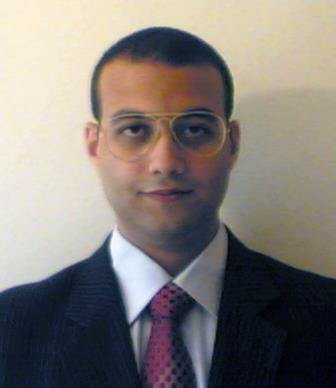
Mohamed Abdelaal is an Assistant Professor of Constitutional and Administrative law at Alexandria University, Faculty of Law – Egypt. Professor Abdelaal earned his Bachelor of Laws (LLB) degree from Alexandria University, Faculty of Law ("English" Department) in 2009, a diploma in public law in 2010, and his Master of Laws degree (LLM) from Indiana University School of Law in 2011. Currently, he is a Doctor of Juridical Science (SJD/PhD) candidate at Indiana University Robert H. McKinney School of Law. His thesis dissertation is titled Towards a New Theory of Presidential Impeachment: A Comparative study Between the Constitution of the United States, the Egyptian Constitution, and Islamic Law. Professor Abdelaal focuses his teaching and scholarship on the areas of Constitutional Law, Administrative Law, Islamic Law, Islamic Constitutional Law, and International Human Rights. Professor Abdelaal has authored several law reviews articles and has served as a presenter and panelist in several conferences and workshops in the United States on law. Currently, he serves as a Research Assistant with Professor Yvonne Dutton, Professor of Law at the University of San Diego School of Law and the Indiana University Robert H. McKinney School of Law. He is a permanent member of the Egyptian American Rule of Law Association (EARLA), Washington D.C.
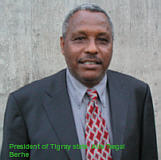
Tsegay Berhe was born in 1947 in Indaba Guna, a few kilometers from Shire town (Western Tigray). For many years he served as a deacon in the Ethiopian Orthodox Church. After high school, Tsegay Berhe took a job in the public administration department of the Tigrayan People’s Liberation Front. He served first as an administrator in eastern Tigray in lrob, Alitena and Gello Makeda, from 1985 he was placed in charge of western Tigray. At the end of the 1980s, Tsegay Berhe became coordinator of the administration of Tigray Region. In 1989, he was elected to the TPLF's central committee and became secretary of the "Dejen" committee. Shortly before the outbreak of the Ethiopian-Eritrean War, he was elected to the Ethio-Eritrean Joint Border Commission, an intergovernmental commission formed to help resolve border disputes through peaceful discussion. Unfortunately, the commission was dissolved at the outbreak of the war. Following the conclusion of hostilities, his vote was instrumental in bringing the Meles Zenawi to power. In April 2001, he was elected President of the Tigray region, where he worked until his appointment as National Secutiry Affairs Advisor to the Prime Minister in December 2010. Tsegay is currently member of TPLF and EPRDF Executive Committee. He is married to Kidusan Nega.
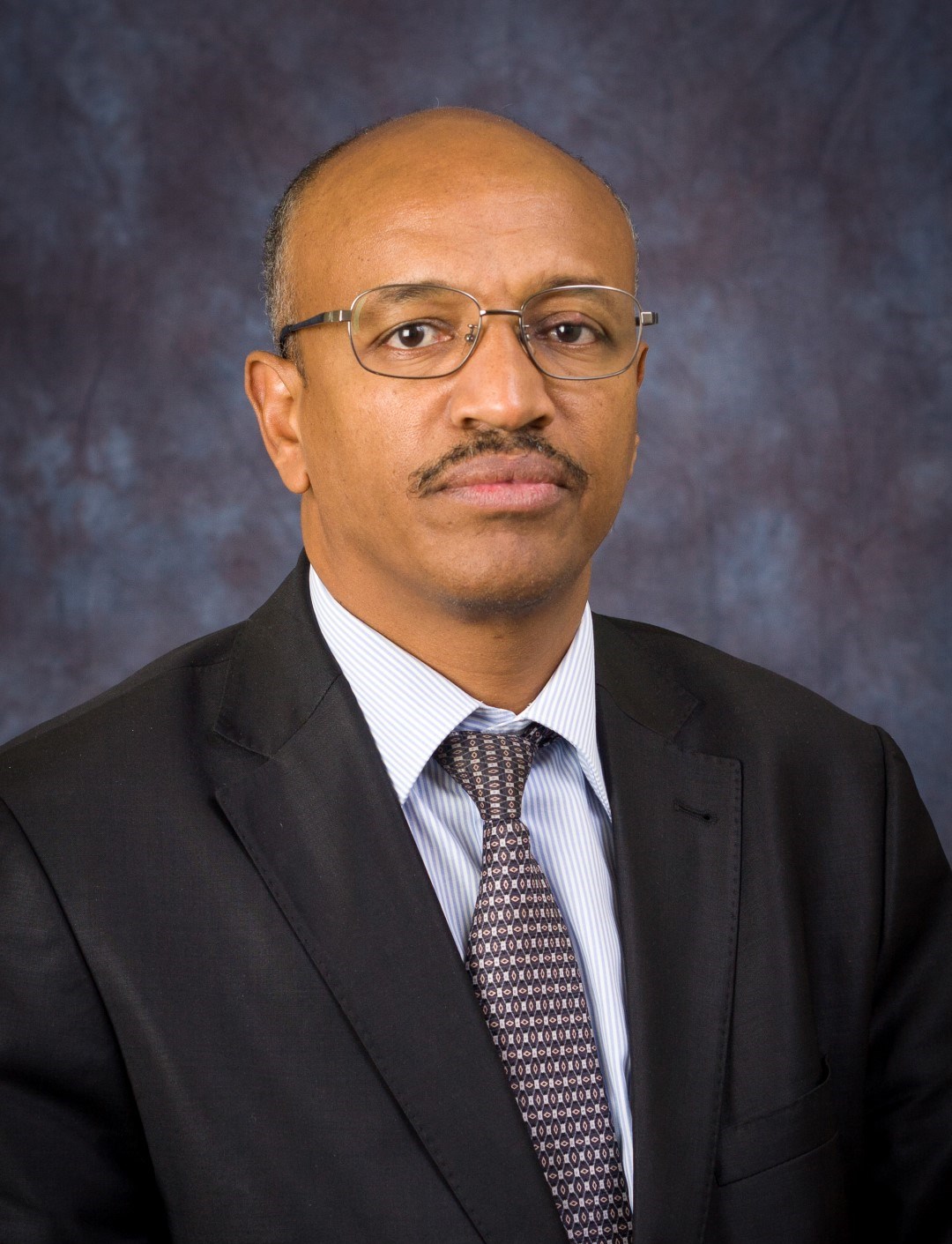
Dr. Shiferaw was born in Hadya Zone of the Southern Nations, Nationalities, and Peoples’ region (SNNPR) on July 17, 1966. He studied secondary education in Wachemo high school (Hadya) and at Missionary School in Addis Ababa. In February 1991 he graduated from Jimma Institute of Health Sciences as a General Medical Practitioner. He studied Public Health at Johns Hopkins University and graduated with a Master's Degree in Public Health in 2000. He also obtained an MBA in Organizational Leadership from Asuza Pacific University in 2006. Dr. Shiferaw worked as Medical Director and head of the district health department in Bonga, Kefa zone, SNNPR March 1991 – 1993. He served as department head of the SNNPR Health bureau from 1994 to 2000. He headed the SNNPR health bureau from 2001 until his appointment as State Minister of Health in 2006. In 2008 Prime Minister Meles appointed Dr. Shiferaw as Minister of Federal Affairs. The Ministry is responsible for development activities in regions, conflict prevention and resolution, religious issues, and licensing of religious institutions. Dr. Shiferaw won a seat in the federal parliament in the May 2010 national election.
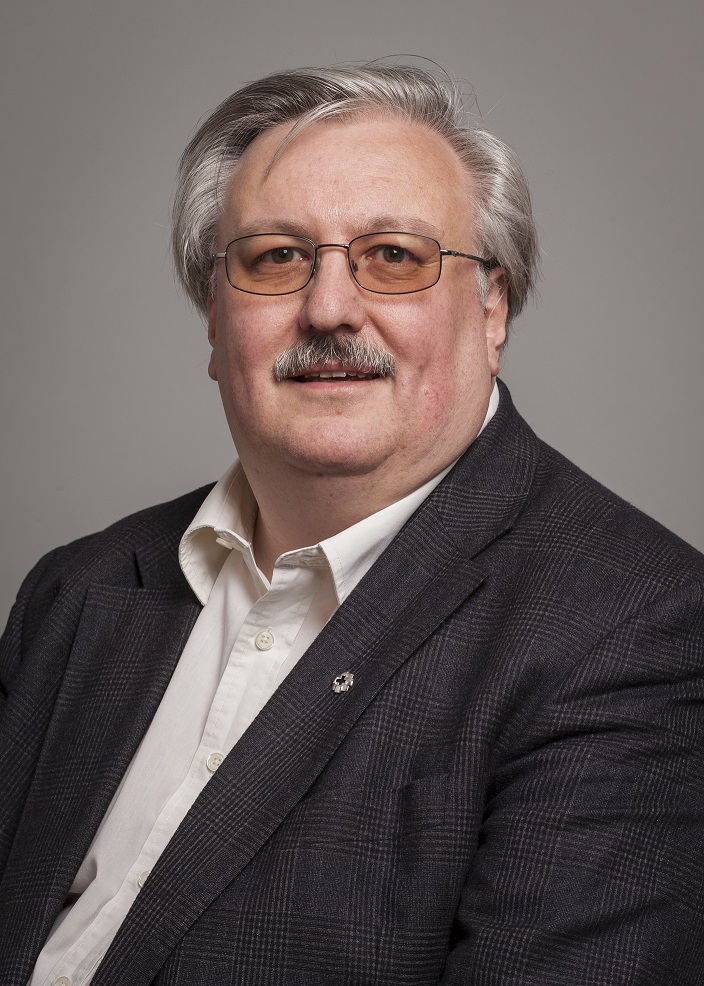
Marco Frenschkowski is a German theologian and history of religion scholar. He has published about early Christianity and other antique religions, church history, new religious movements, also extensively on supernatural and fantastic fiction. He has edited annotated editions of classic fantastic literature, Renaissance texts and others. Among his books written for a more general public are a survey of holy scriptures in the world religions, a critical look on speculative ideas about early Christianity, and a book on the cultural history of ideas about witchcraft. At the moment he is working on a survey of collections of magical rituals from antiquity to the present, and also on his magnum opus, a study of early Christianity from a Religious Studies point of view. He has been deeply involved in interreligious dialogue for many years, and also in human rights questions especially in the case of minority religions.
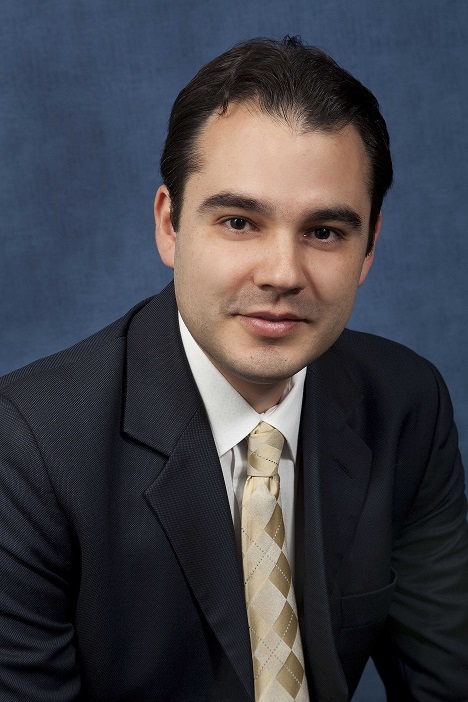
Mr. Luis Pedro del Valle is a partner at Arias & Muñoz (Guatemala). He specializes in giving civil and corporate counsel. He is also well experienced in finance and stock market transactions, and possesses experience and knowledge in the fields of Telecommunications Law, as well as Information Technology Law. He obtained his Law Degree at the Universidad Francisco Marroquin, where he also obtained his degree as Attorney and Notary Public. He is a candidate for an LLM in Information Technology Law at Stockholm University in Sweden. He is currently working on his second thesis aimed at analyzing the automation of law. Mr. del Valle has been actively involved in scholarly issues. He is a professor at two law schools in Guatemala, teaching a wide variety of subjects such as Civil and Commercial law, as well as Guatemalan history.
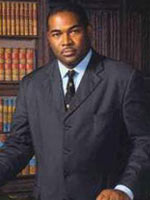
C.A. Nigel Hughes is the holder of an LLB and an LLM from University College, London. He was admitted to the Inner Temple in the United Kingdom in 1987 and to Guyana Bar in 1988. He is currently a Managing Partner in the firm of Hughes Fields & Stoby, the largest law firm in Guyana, and is a former President of the Guyana Bar Association. His areas of practice include: corporate and commercial law, oil & gas, mining, real estate, international commercial transactions, and human rights. Mr. Hughes currently works as a Trial Attorney.
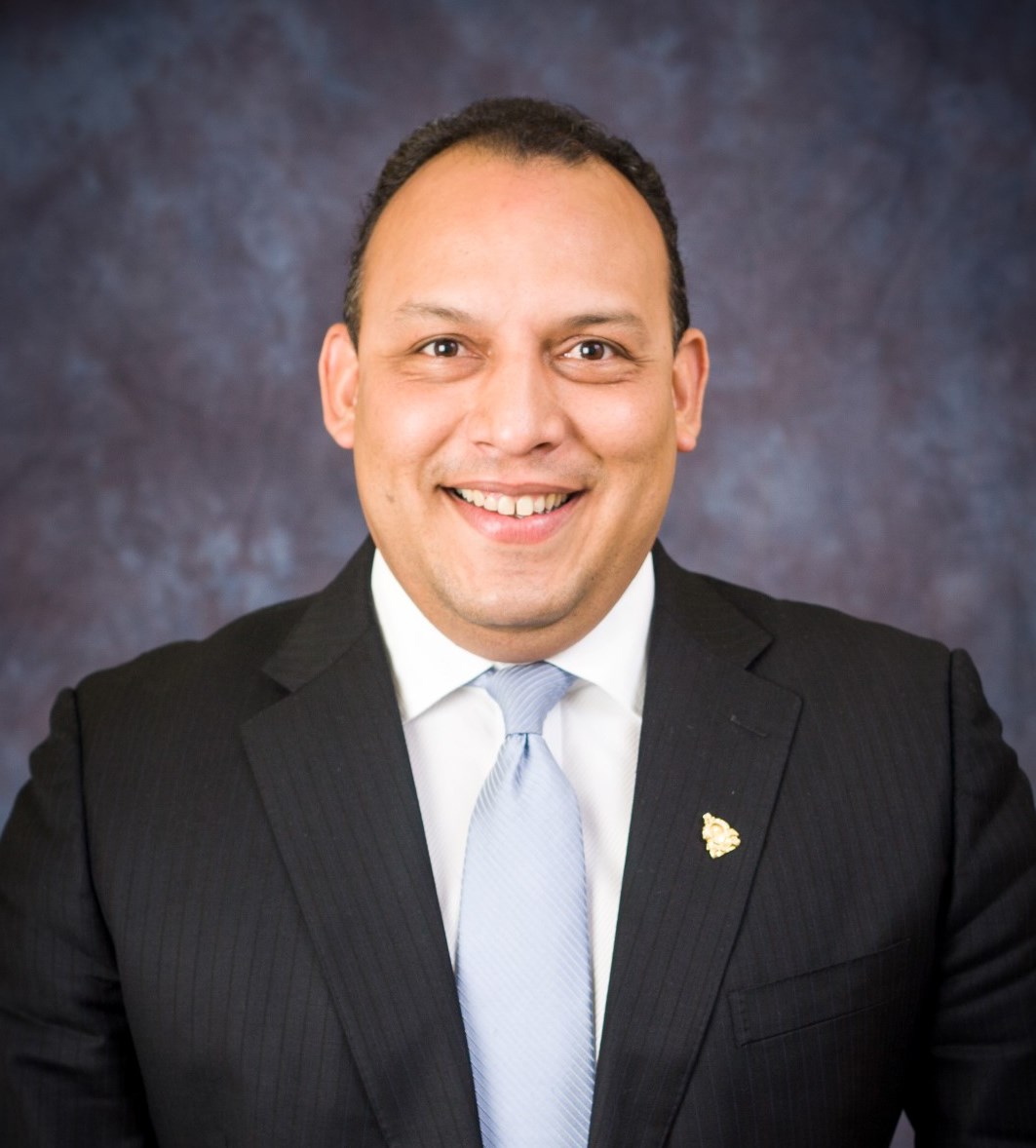
Congressman Pinel is a dynamic member of Congress in Honduras. By profession he is a dentist, but has been involved in politics for many years. He was an outstanding athlete in Honduras and is well known by the people in his country.
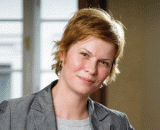
Renáta Uitz is Head of the Department of Legal Studies and Chair of the Comparative Constitutional Law program. Her research and teaching cover subjects in comparative constitutional law in Europe and North America, transitional justice and human rights protection, with special emphasis on religious liberty and sexuality. She is the author of Constitutions, Courts and History (2004) and Freedom of Religion in European Constitutional and International Case Law (2007), and the editor of The Constitution in Private Relations: Expanding Constitutionalism (with Andras Sajo, 2005), Constitutional Topography: Values and Constitutions (with Andras Sajo, 2010), and most recently Arguments that Work: Strategies, Contexts and Limits in Constitutional Litigation (2013).
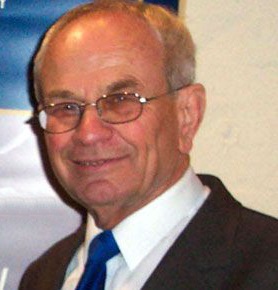
Asher Maoz is the Founding Dean of the Peres Academic Center Law School. He was, for many years, on the Faculty of Law at Tel-Aviv University, where he taught Constitutional Law, State and Religion, Freedom of Speech, Family Law, and Succession Law. Professor Maoz holds the degrees LLB and LLM, both summa cum laude (Hebrew University), M Comp L (University of Chicago), JSD (Tel-Aviv University) and Doctor Honoris Causa (Ovidius University, Romania). He is the founding Editor-in-Chief of Law, Society and Culture; a former editor of the Tel-Aviv University Law Review; a member of the Scientific Board, Review Dionysina; a member of the Academic Council of The International Academy for Jewish Leadership; and a member of the Academic Council, Shalem College, Jerusalem. Maoz was Chair of the Law Commission for Journalists’ Privileges; served as academic advisor to the Knesset Constitution, Law and Justice Committee on adopting a constitution for the State of Israel; and serves with many other organizations. He has taught at several universities in the United States, Europe, and Australia, and is the author of numerous publications on the intersections of law and religion. He is a member of the Steering Committee of the International Consortium for Law and Religion Studies (ICLARS).
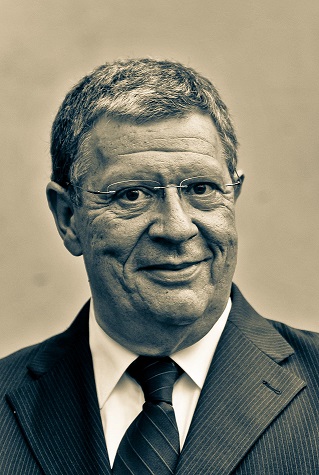
Dr. Betti has a PhD and a Post-Doctoral Degree in History. He teaches International Relations and Conflict Resolution at the IES University in Rome and at the Pontifical University Serafico in Rome (Master in Conflict Resolution). Since 2003, he has worked as an advisor for International Issues to the Italian Ministry of Health. He has been involved in most of the activities of the Community of Sant’Egidio in the field of peace and inter-religious dialogue since 1982.

Anna Nardini, Counsellor in the Office of the Prime Minister, graduated with a Degree in Law from the Università degli Studi in Rome and then received a Master's Degree in Administration Science, with honors. She has been able to research land management of the Netherlands, work as a teaching assistant in both Administrative Procedures at the Scuola Superiore of Public Administration and in Public Law in the at LUISS University. In 1984 she worked with the Foreign Ministry as Administrative Deputy Inspector in the Directorate-General for Emigration and Social Affairs. From 1986 to 1998, she worked in the Department of Legal and Legislative Affairs in the Office of the Prime Minister. Her responsibilities included dealing with the 1984 Holy See agreement and the agreements with religious denominations. After winning an open competition for the position of Manager in the Prime Minister’s Office, she was the acting Deputy Chief of the Legislative Office of the Minister for social solidarity. She then worked for the Office of the General Secretary, Service for the institutional relations and relations with religious denominations. Since 2002 she has been the coordinator of the Office of Studies and Institutional Relations. Her responsibilities include: dealing with relations between the Government and religious denominations, coordinating the activities of institutions and committees of the General Secretariat that are related to ethics and human rights (bioethics, biotechnology, human rights), and relations with the institutions of administrative, accounting and fiscal justice (Council of State, Administrative Local Courts, National Audit Office, Fiscal Commissions). Her office deals with issues concerning the agreements with religious denominations and the 1984 Agreement with the Holy See. The office also gives special support to several Commissions working on specific aspects of religious freedom.
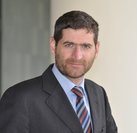
Andrea Pin (Venice, Italy, 1976), Senior Lecturer in Constitutional and Comparative Law, University of Padua, holds a PhD from the University of Turin. He has clerked at the Italian Constitutional Court since 2011. He is a Senior Fellow at the Center for the Study of Law and Religion at Emory University. He has authored two books, edited two books on new human rights and the Italian translations of two English-written books on Protestantism. His fields of study cover law and religion, comparative perspectives on human rights, comparative federalism and constitutional interpretation.
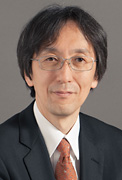
Professor Makoto Ida was born in Tokyo in 1956. He studied at Tokyo’s Keio University, where he is still working today as a professor of criminal and medical law. From 2009 until 2013 he was Vice President of the University. Professor Ida was President of the Religious Juridical Persons Council (Japanese Ministry of Education, Culture, Sports, Science and Technology). He is now a member of the Science Council of Japan (Cabinet Office, Government of Japan), and a member of the board of the Criminal Law Society of Japan. He received the degree Doctor of Law (summa cum laude) from the University of Cologne in 1989. In 2006, he earned the Phillip Franz von Siebold Prize from the Humboldt Foundation, and in 2009, he received the Eugen und Ilse Seibold Prize from the German Research Foundation (DFG). He received an honorary doctorate from Saarland University in 2009 and from the University of Erlangen in 2012. He was appointed Saarland Ambassador in 2010. He is an author of many books and articles in Japanese and German in the field of criminal law.
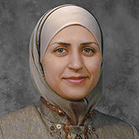
Rana R. Arna’out is a Magistrate Judge in the Hashemite Kingdom of Jordan. She has a Master’s Degree in Comparative Law from the J. Reuben Clark Law School; the LLM Program. Judge Rana started her work as a Magistrate Judge and a State Attorney in 2010. Prior to that, she studied at the Jordanian Judicial Institute for two years, where she got a High Diploma in Judicial Studies, her thesis focused on the expiration of the leasing contracts. She graduated after three and a half years from the Law school in 1999 with a Bachelor Degree in Law. Between 1999 and 2008, Judge Rana worked as a licensed attorney, legal advisor, and counselor at the law firm she established under her name; developing her experiences in different legal areas and practicing several kinds of legal services such as litigation, civil and criminal, and counseling. She is now working for a year at the law firm of Kirton McConkie in Salt Lake City as a practical training after the LLM Degree.
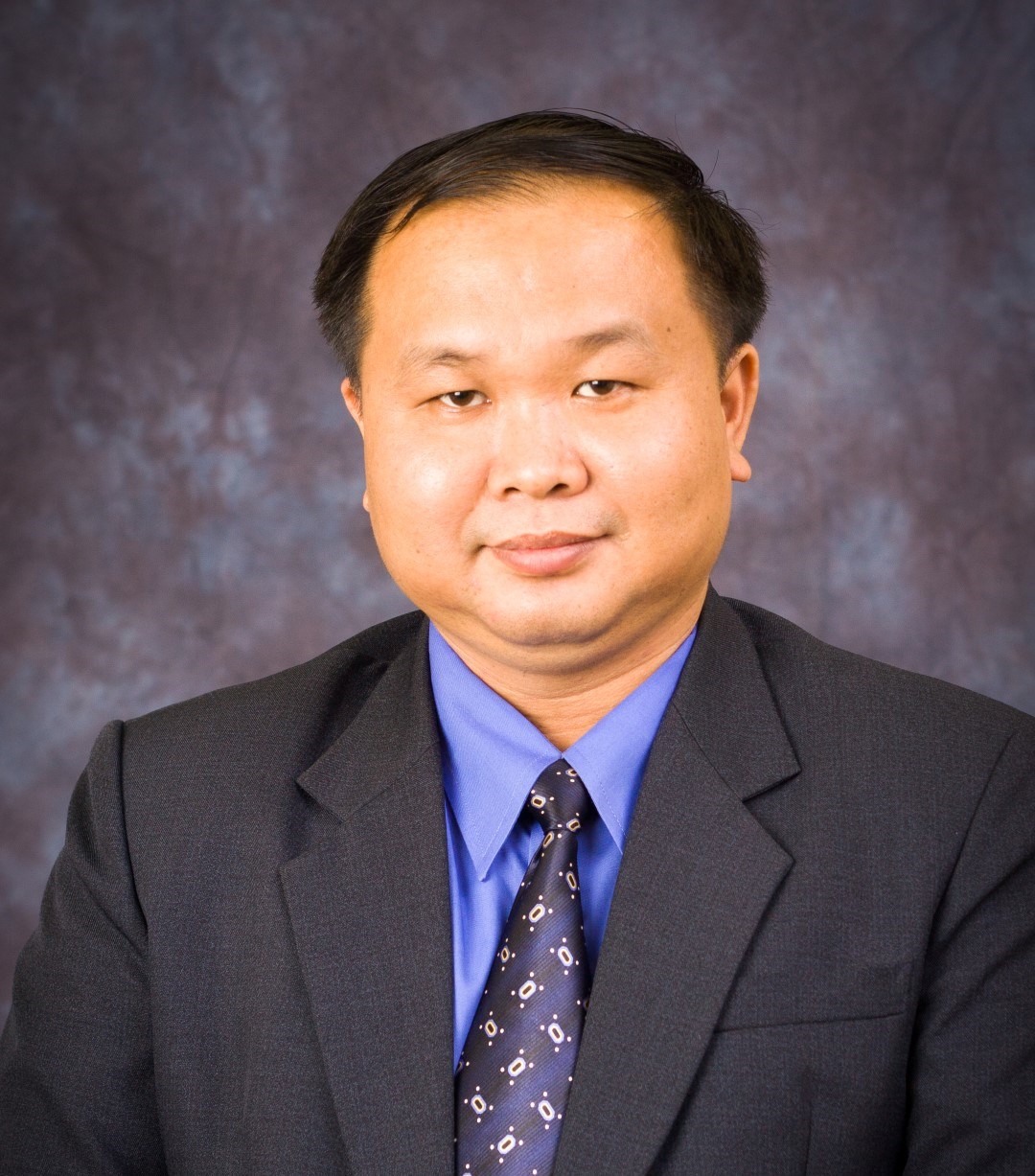
Mr. Lathsadavong was born 5 March, 1978 in Phonkham Village, Nambark District, Province of Louang Prabang, Lao People’s Democratic Republic. He finished secondary school in the same province, and obtained a Master of Arts degree from the Religion Society in 2004. He married his wife Malayphone in 2010. They have no children. He is fluent in Lao and English. At present, he is the Director of the Religions Division of the Lao Front for National Construction, in Vientiane, Lao People’s Democratic Republic.
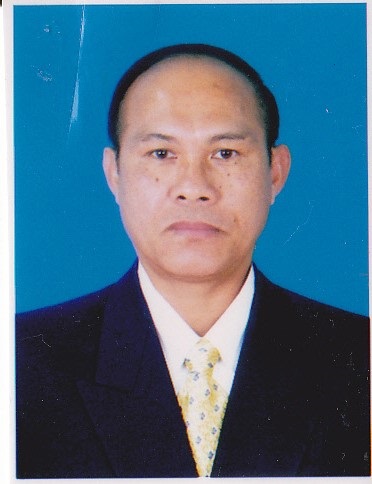
Bounna Phathoummavong was born on September 10, 1963 at Savannakhet, in Central Laos, where he attended primary and secondary schools. He attended the Vietnam National University, Hanoi, from 1989 to 1993, where he obtained his Bachelor of Arts in Government and Politics. He also attended the same university from 2000 to 2001 and is currently completing his Master of Arts degree in the same field. Mr. Phathoummavong is married and has three children. He speaks Vietnamese, English, and Lao. At present he is the Director General of the Department of Home Affairs, Vientiane Capital, Lao People’s Democratic Republic.
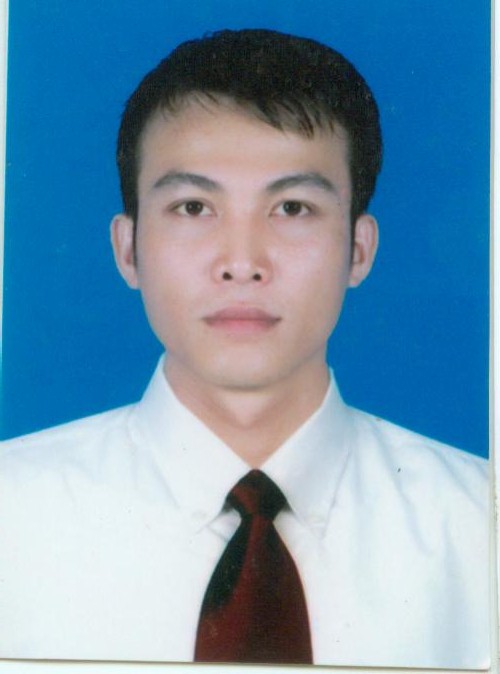
Houmphan Xayasith was born in Louang Prabang, Laos on April 5, 1981. He is a senior staff member of the Ethnic and Religious Affairs Department, Ministry of Home Affairs, Government of Lao People’s Democratic Republic. He attended the Chulalongkorn University of Bangkok, Thailand from 2001 to 2006, where he graduated in Business Administration. He married his wife Soumaly in 2009. And they have one child. He speaks Thai, Lao and English.
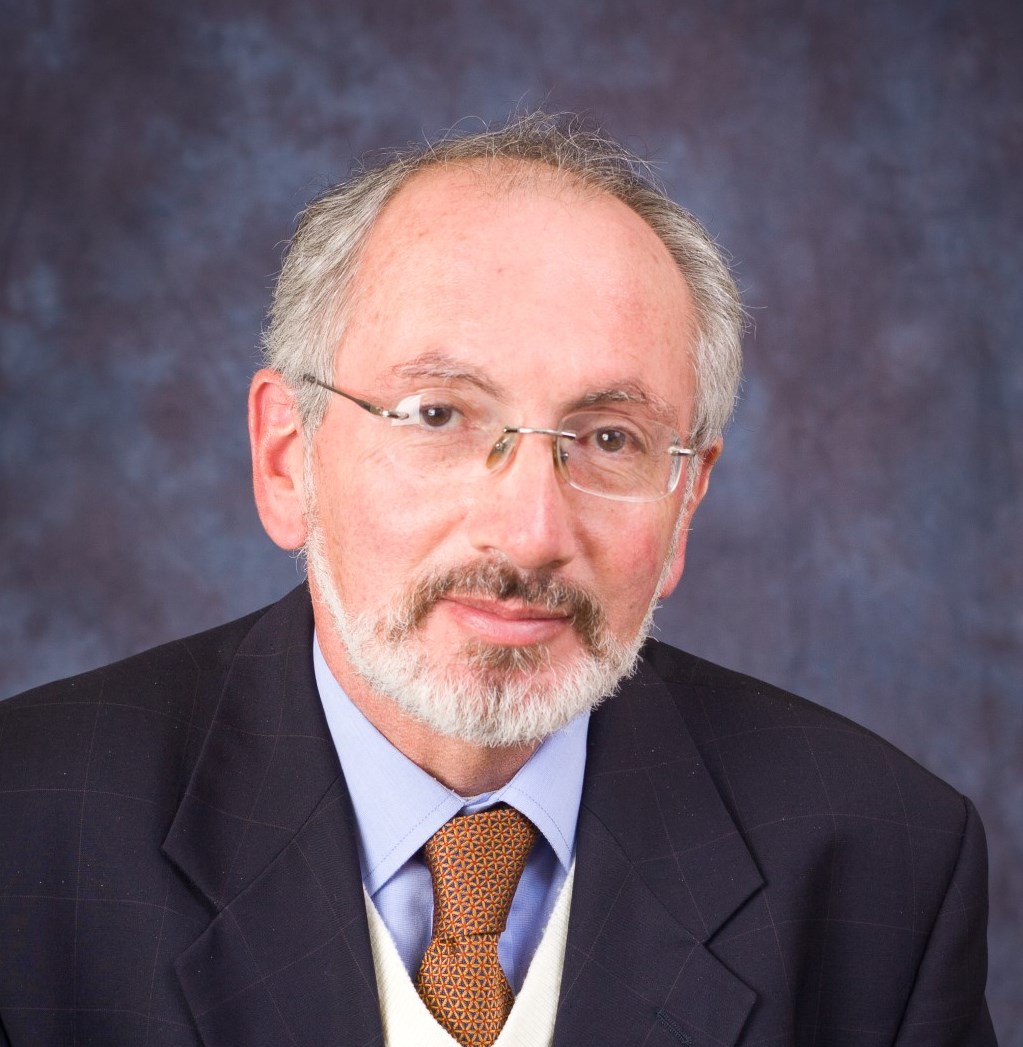
Michel André Touma is the Director and General Editorial Assistant for the largest French Newspaper in Lebanon, L'Orient-Le Jour (The Orient-The Day). He is an editorial writer focusing on religious freedoms. He is a researcher, author, and professor at Saint Joseph University in Beirut. His research and writing focus on Middle Eastern law and religion issues, both editorial content and observation. He is the author of more than 300 articles since 1980, published in the French newspaper.
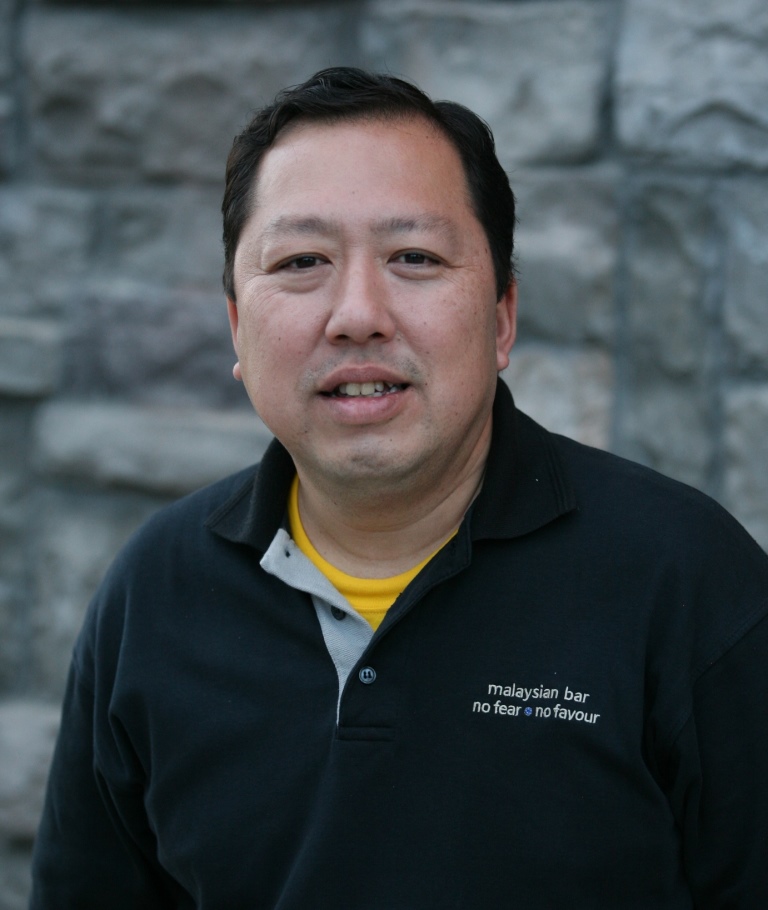
Andrew Chin Hock Khoo is the co-chair of the Human Rights Committee of the Malaysian Bar Council (2009 to present). He serves as a delegate to the Malaysian Consultative Council on Buddhism, Christianity, Hinduism, Sikhism, and Taoism. He is also an Executive Committee Member for the Christian Federation of Malaysia (which represents 90% of the Christian community in Malaysia). He is a legal advisor to the Bishop of the Anglican Church of West Malaysia and to the Archbishop of the Province of the Anglican Church in SE Asia. He graduated in law from King's College London.
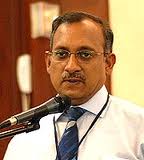
Reverend Dr. Hermen Shastri is the General Secretary of the Council of Churches of Malaysia. Dr. Shastri works to promote Christian unity in Malaysia. He also helps facilitate Christian public opinion and relates it to contemporary moral, social, national and international problems. He promotes discussion and action among Malaysian churches. He is also responsible to help maintain relationships with foreign Christian Councils or Council of Churches. Dr. Shastri is also an ordained minister of the Methodist Church in Malaysia. He serves on numerous committees including, The Malaysian Consultative Council of Buddhism, Christianity, Hinduism, Sikhism and Taoism. He has also associated with numerous ecumenical organizations like the Christian Conference of Asia.
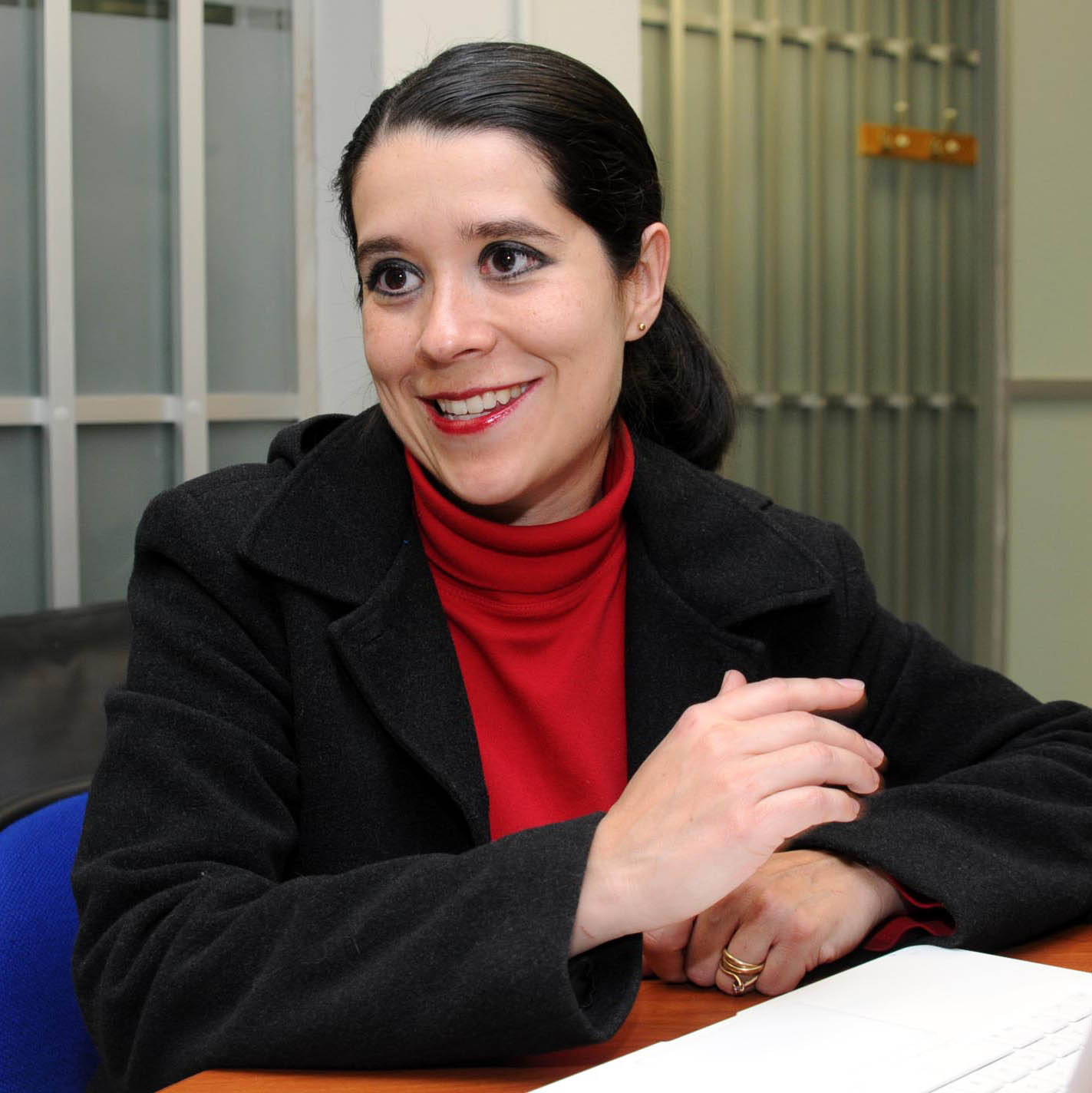
Paola Carmona is a Professor of Constitutional Law at the National Autonomous University of Mexico (UNAM), and in the Monterrey Superior Studies Technological Institute (ITESM). She earned her JD summa cum laude at UNAM, and her thesis won 2011 Public Law Theme first prize by Secretaria de Gobernacion (Mexico’s Department of State). Currently, she is a parliamentary consultant for the National Action Party (PAN) at Camara de Diputados (Mexico´s House of Representatives) specializing in human rights and religious issues. Before that, she was a Law Clerk at Suprema Corte de Justicia de la Nacion (Mexico’s Supreme Court of Justice).
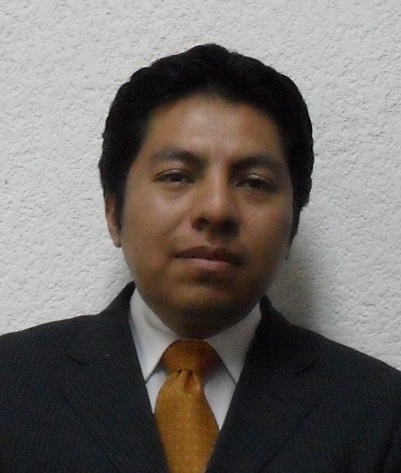
Efrén Chávez Hernández is a full-time Academic in the Legal Research Institute, National Autonomous University of Mexico (UNAM) Mexico City. He is a titled Professor in "Comparative Law," Law School (UNAM), Doctor in Law candidate; Master in Law; Diploma on political and constitutional studies (Centre for Political and Constitutional Studies, Madrid, Spain) and Diploma in Comparative Law (International Faculty of Comparative Law, Strasbourg, France). He is also a participant in Catholic Charismatic Renewal, Mexico City.
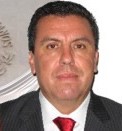
José Ricardo López Pescador is currently General Director, Fideicomiso Fondo Nacional de Fomento Ejidal (National Trust Fund for Communal Land) (FIFONAFE), a national assistance program for farmers and ranchers. He obtained a Master’s Degree in Constitutional and Social Law from the Juarez University of Durango, where he won the academic award of merit in 1987 (highest grade average of his class). He has attended a number of seminars and courses in prestigious national and foreign universities such as the University Complutense of Madrid and George Washington University in Washington, D.C. Mr. Lopez' was State General Secretary, Durango (2006) and was elected City Council Member, Durango (2001-2003); City Council Attorney, Durango (2003-2004); State Congressman, Speaker of the House, and Chairman of the House, LXIII Legislature (2004-2006); and Federal Congressman, Legislature LXI (2009-2012).
His dediced efforts while serving as Federal Congressman resulted in significant religious liberty reforms to Mexico’s constitution and current legislation. He authored the most important constitutional religious liberty reforms in Mexico in the past 100 years (Article 24, which was passed by a two-thirds majority vote in the Congress and Senate).
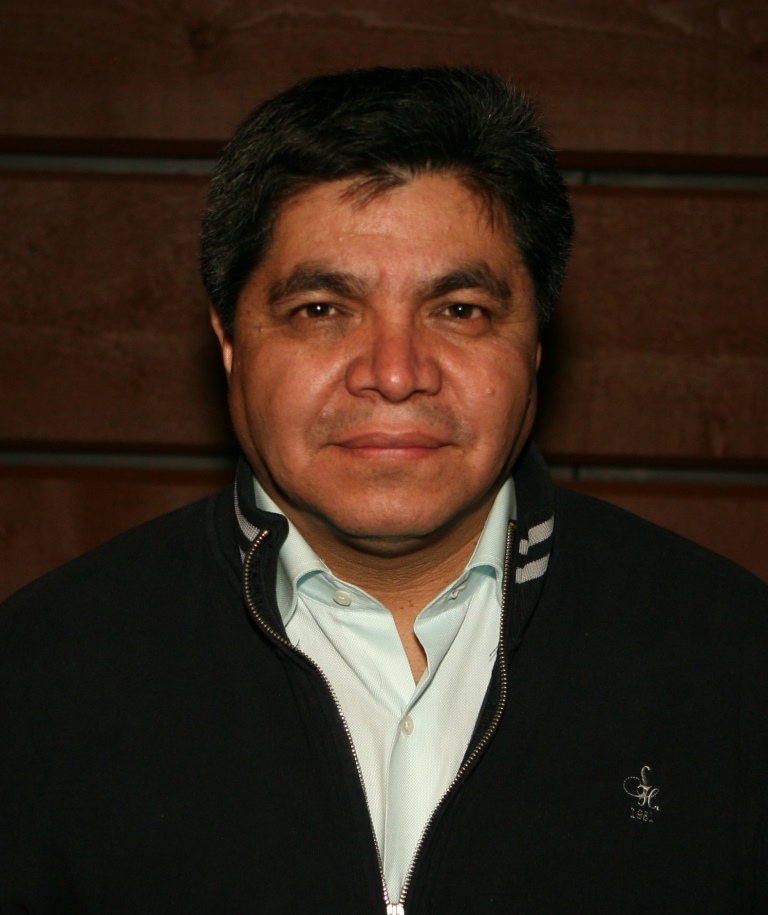
With a history of over 20 years in the public administrative sector, Dr. Eliseo Rosales Ávalos, current Director General of Federal Heritage Administration (INDAABIN), holds a Ph.D. in Public Administration and an MBA Degree. He also has degrees in Law and in Political Science and Public Administration. He has diplomas in political analysis, corporate finance, and e-government. He is the author of the books From Governance to Public Management and Civil Service System in Mexico. He teaches at two Universities (Universidad Anahuac and Universidad Iberoamericana), where he passes on his knowledge of Public Administration and Human Rights.
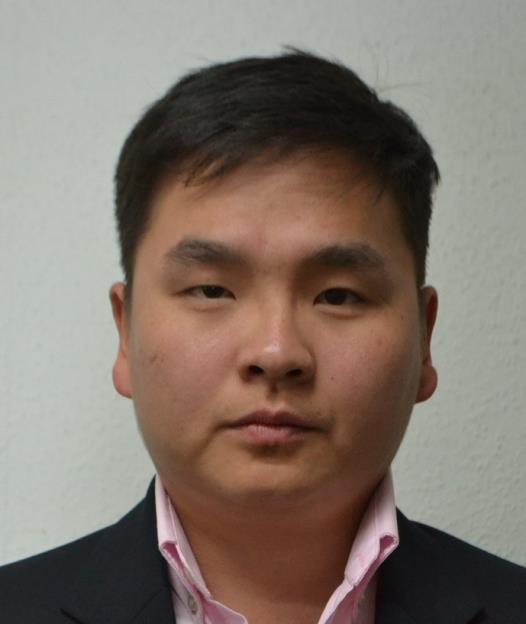
Mr. Bat-Ochir is an officer of the Coordinating Council of the Capital City Crime Prevention Division in Ulaanbaator, Mongolia. He also serves as a member of the Capital City Citizenship Khural and its Working Group in charge of resources and religious organizations. His undergraduate education was at the USI College. He received his law degree from the Mongolian National University Law School.
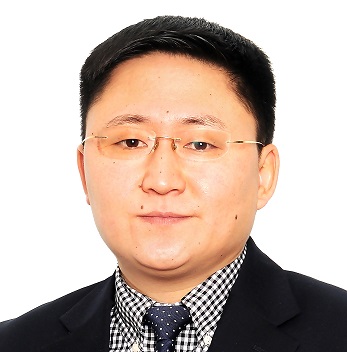
Mr. Enkhbold is serving as the Secretary of the Presidium of the Capital City Citizenship Khural. He also has served as Director of the Debate Program of the Open Forum Program of the Soros Foundation since 2003. From 2005 to 2012 he served as the Public Affairs Specialist for the Newcom Group/EZNIZS Airways. He also served as the Deputy Director of Public Affairs for the Newcom Group – Mobicom Corporation, Planning and Research. Likewise he was the Deputy Director of Public Affairs for the Democratic Party of Mongolia in 2007. Mr. Enkhbold received his undergraduate training at Irreduy School (1989-1999) and his graduate and legal training (1999-2003) at the Mongolian State University and Law School. He also attended the Leadership Academy in 2004-2006 and received a Master’s Degree in Social Sciences. He received an MBA in 2005 from the Institute of Finance and Economy.
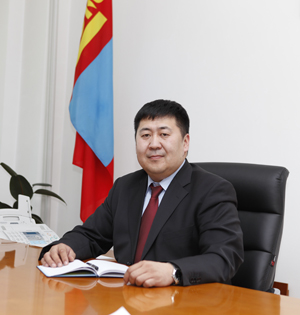
Mr. Munkhbat has served for the past year as the Vice-Director of the Mongolian Immigration Office. For three years prior to that, he was the Senior Officer in the Mongolian Border Protection General Authority, Border Control Department. He has also served as the Border Patrol Chief of Staff in the Umnu-gobi and Selenge Aimag regions and as the Legal Advisor for the Mongolian Border Protection General Authority. He was educated at the Russia-Border Academy and the Mongolian Police Academy.
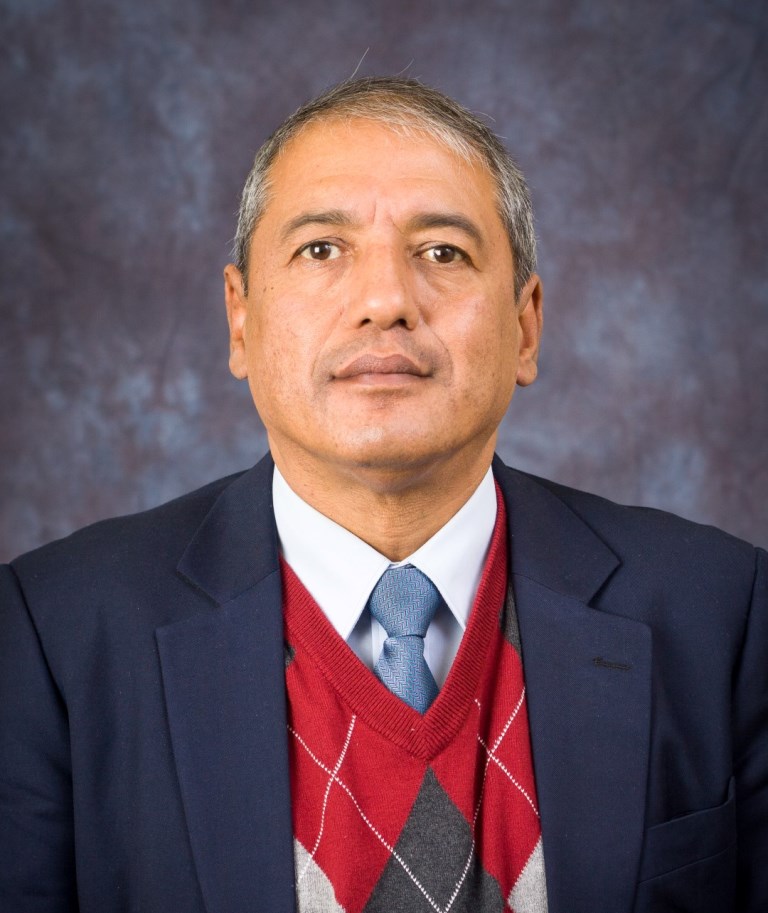
Rakesh Hamal is the Executive Director of the GP Koirala Foundation for Democracy, Peace & Development. He is also the Chairman of the National Rehabilitation Society for the Disabled (NGO). He serves as a Board Member for the following organizations: The Institute of Foreign Affairs, The Industrial Enterprise Development Institute, The Social Welfare Council, and The Management Committee of the People’s General Hospital. He has worked with the Institute and Ministry of Foreign Affairs, the Council for World Affairs, and the Social Welfare Council. He has traveled extensively with various delegations and for other purposes to over 20 countries representing his country. Mr. Hamal speaks English, Hindi, Russian and, Thai.
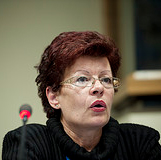
Zorica Angelovska Kovachevikj, BSc in Psychology, was born in Skopje, Republic of Macedonia. She is a graduate of the Philosophical Faculty, Institute for Psychology at the Sts. Cyril and Methodius University in Skopje. She has worked as a Sector head for cooperation with churches, religious communities, and groups at the State Commission for Relations with Religious Communities and Groups since 1983. She has participated in a number of international and national conferences and is a member of the national coordinative and operative bodies for organization of all three World Conferences for Inter-Religious and Inter-Civilization Dialogue held in Ohrid (2007, 2010) and Skopje (2013).
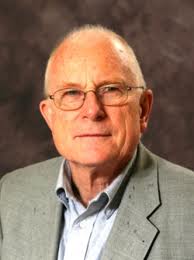
Tore Lindholm is associate professor (philosophy) at the Norwegian Centre for Human Rights, Faculty of Law, University of Oslo and board member of the Oslo Coalition on Freedom of Religion or Belief and of the Human Rights Committee of the Church of Norway. His research interests focus on (1) the grounds for embracing universal human rights and in particular the right to freedom of religion or non-religious conviction and (2) the two-way traffic between human rights and religions (in particular with respect to Islam and Muslims). He co-edited, with Cole Durham and Bahia Tahzib-Lie, the volume Facilitating Freedom of Religion or Belief: A Deskbook (Brill 2004), which is now published in Indonesian and Russian translations, with a Chinese translation under way. Lindholm co-initiated and sat on the steering committee of the Norwegian Research Council Ethics Program 1990-2001. He co-edited a book on An-Naíimís Islamic reform thinking, Islamic Law Reform and Human Rights: Challenges and Rejoinders (1993, with Kari Vogt) and with Cora Alexa Døving and Sidra Shami produced Religious Commitment and Social Integration: Are there significant links? A pilot study of Muslims in the Oslo area with a family background from Pakistan (2010). He is author of The Cross-Cultural Legitimacy of Human Rights: Prospects for Research (1990/1994); Article 1: A new beginning? in The Universal Declaration of Human Rights: A Common Standard of Achievement (1999); Ethical justification of universal rights across normative divides in Universal Ethics (2004); and Perspectives and Proposals from Scandinavian Scholars (2002).
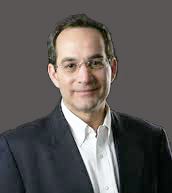
Martin Burt is the Founder and Executive Director of Fundacion Paraguaya; co-founder of Teach A Man To Fish, Bertoni Nature Conservancy and Mbaracayu Forest Reserve Foundations. Formerly he was the Minister Secretary General and Head of the President of the Republic’s Cabinet, Mayor of Asuncion, and the Vice-Minister of Commerce. He is currently holds positions as a Visiting Professor of Social Entrepreneurship, American University of Nigeria, Professor of Practice, Worcester Polytechnic University; Regional and Global Board member, Junior Achievement Worldwide, Education and Entrepreneurship, Tanzania. He has authored books on economics, development, education and poetry. He is the recipient of numerous awards including awards from Schwab Foundation for Social Entrepreneurship, Skoll Foundation, Avina, Nestlé 2012 Shared Value, UNESCO, BBC World Challenge, and the Global Development Network.
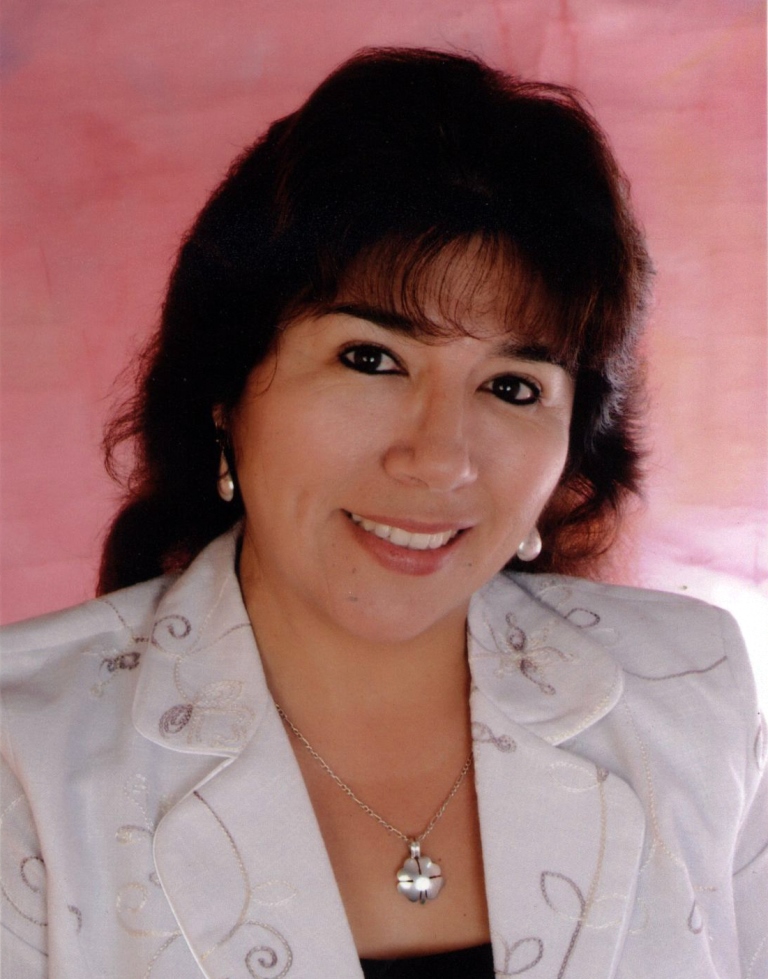
Ms. Olivos is a lawyer who graduated from the Universidad Nacional Mayor de San Marcos. She received her Master's Degree in constitutional law from the Universidad Nacional Federico Villarreal, where she is currently completing her PhD. She specializes in administrative law, public management, and alternative conflict resolution. She also specializes in Christian education through her connection with the Instituto Bíblico Bautista de Lima. She is the Directora de Asuntos Interconfesionales of the Office of Justice and Religion of the Ministry of Justice and Human Rights of Peru where she oversees church-state relations with the all of the non-Catholic churches, in an effort to bolster religious freedom. She has over twenty years of experience defending government interests in her ountry.
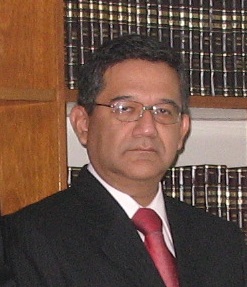
Mr. Arata Solís earned his law degree from the National University of San Marcos, and was admitted to the Lima Bar of Lawyers in 1990. He earned a Master's Degree in civil and commercial law from San Martin de Porres University. He is a professor of property law at the Universities of Lima, San Martin de Porres and the Pontifical Catholic University of Peru. His principal areas of practice are property law, contracts, public law, and urban planning, with special emphasis on land registration law. He has developed specialized consultancies in property rights and public records for the Inter-American Development Bank (IDB). He has provided advice on matters in his areas of specialization to institutions of the Peruvian government like the Property Registry Authority (Superintendencia Nacional de Registros Públicos), the Special Commission on Privatization (Proinversión), and the Government Property Authority (Superintendencia de Bienes Estatales). Mr. Arata Solís was a member of the commission charged with of amending the regulations of the Law of Urban Development, representing the Property Registry Authority (Superintendencia Nacional de Registros Públicos), and was also a member of the committee responsible for reviewing the draft of the property registration's regulations, representing the Board of Deans of the Peruvian Bar of Lawyers. Additionally, he was a consultant in property registration issues for the public investment project "Registration with National Jurisdiction" (Inscripción Registral con Competencia Nacional - IRCN) of the Peruvian Property Registration Authority (Superintendencia Nacional de Registros Públicos).
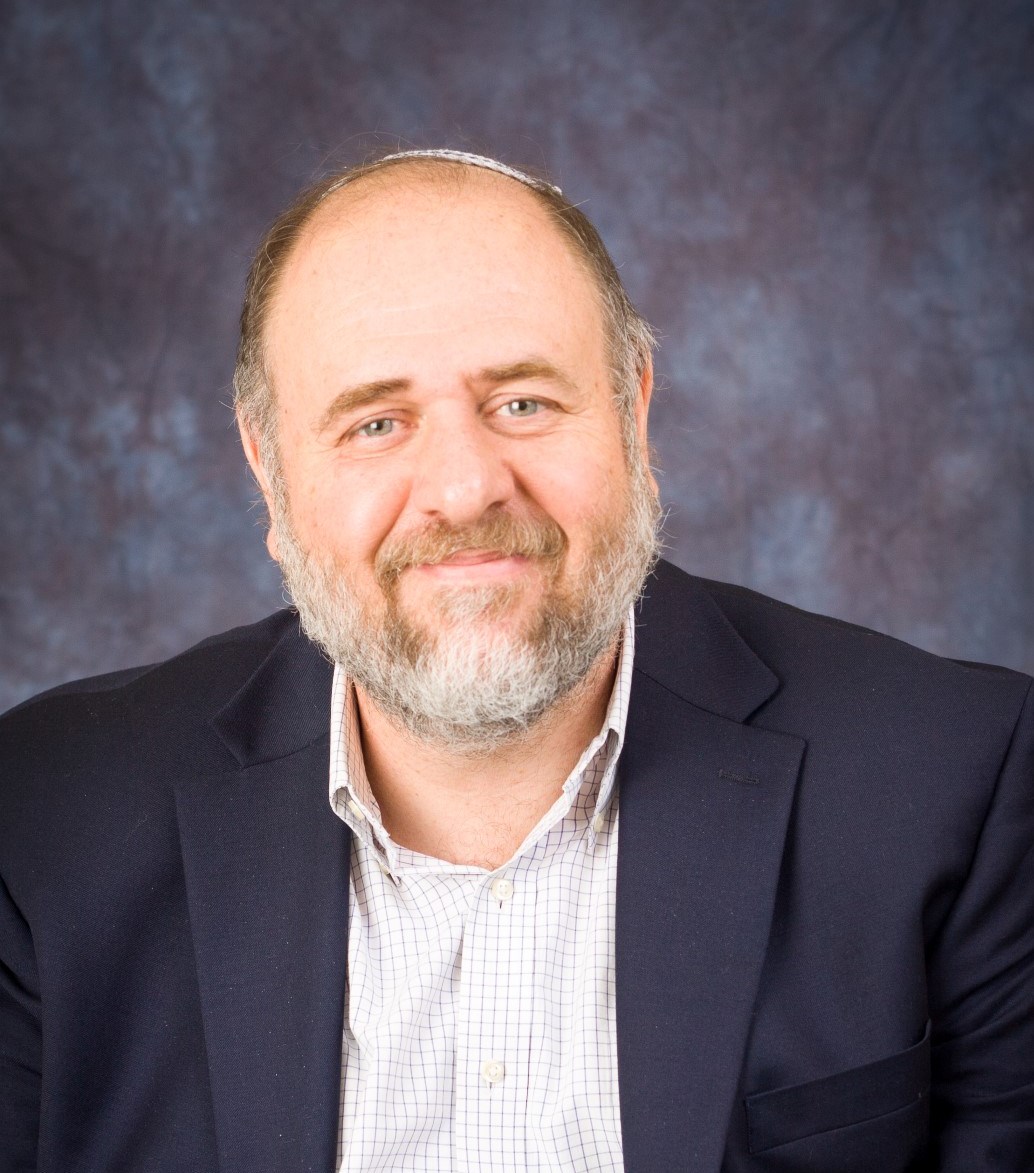
Elias Szczytnicki is the Secretary General and Regional Director of Religions for Peace. He is the secretary of the Latin America and Caribbean Council of Religious Leaders. As a representative of the Interfaith Committee, he was member of the national executive committee of the consensus - Building Table on Faith against Poverty of Peru. He has a Bachelors degree in history from the Pontificia Catholic University in Peru, a Certificate on Jewish Nonprofit Management from the Latin American Training and Investigation Center for Jewish Studies. He has served as a Secretary of the Interfaith Committee of Peru, for inter-religious understanding, dialogue and cooperation.
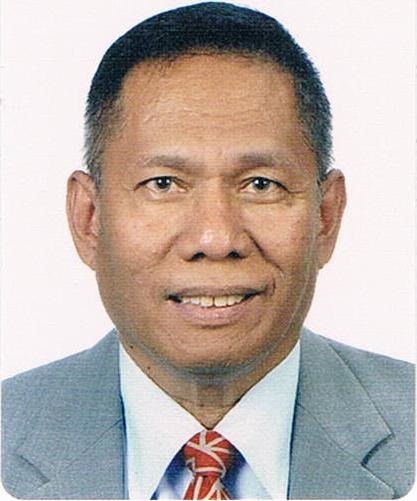
Professor Quivido T. Oregines is an anthropologist at Xavier University in Cagayan de Oro City, Mindanao, Philippines. He has been teaching cultural anthropology for more than two decades. He is also a peace advocate. Currently, he is involved in inter-religious dialogue between Muslims and Christians in Mindanao.
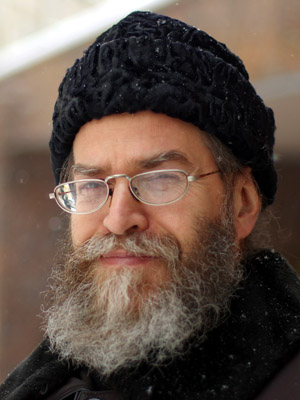
Yakov Krotov (born in 1957) is a Russian journalist, historian, radio host and priest of Ukrainian Autocephalous Orthodox Church Reunited. He is of mixed Russian (on his father's side) and Jewish (on his mother's side) descent. After graduation from the biology department of Moscow State University in 1982, he worked as a librarian and archivist. In 1991 he started his journalistic career and published numerous articles about the problems on tolerance in Russia, freedom of conscience, and Christianity and democracy. Since 1997 he has worked for Radio Free Europe, hosting talk shows regularly under the title "From the Christian point of view." He has lectured in the United States on the topic of Russian Orthodoxy as a Bradley Visiting Scholar. He is married and has two sons.
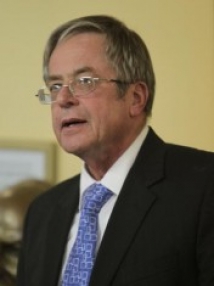
Judge Bertlesmann matriculated from the Afrikaanse Hoër Seunskool (Afrikaans Boys’ High School) in Pretoria (1964). He received a Bachelor's of Law Degree (Stellenbosch University) in 1968 and a Llegum Baccalaureus (University of South Africa) in 1971. He then became a public prosecutor in Pretoria (1972) and joined the Pretoria Bar as advocate (litigator) in the same year. He has also worked as a senior counsel (1988). He was the Chairman of the Pretoria Bar for three terms and then was appointed Judge of the High Court in 2000. He is a founding member of Lawyers for Human Rights South Africa and is a member of the executive of the Association for the Abolition of the Death Penalty. He has worked as a professor extraordinary for Criminal Procedure (University of South Africa) and for Insolvency Law (Pretoria University). He is the co-author of two text books on criminal procedure and insolvency law. He has participated in numerous conferences and congresses on human rights, procedural law, case flow management, advocacy training and other subjects. He is a qualified trainer of advocacy trainers in both the United Kingdom and South Africa. He attended rehab for addiction to benzo-diazepine and alcohol in 1986 at the Christian Elim Clinic Kempton Park, since then he has served 23 consecutive terms as non-executive director of the same clinic. He is a member of the congregational council of the Dutch Reformed Church Meyerspark congregation. He is married to Jeanette and together they have six children, twelve grandchildren, three dogs, and three cats.
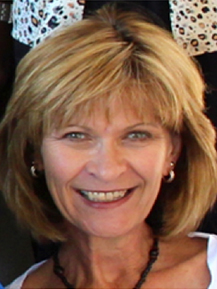
Dr. René Ferguson is a full time lecturer and researcher in the School of Education at the University of the Witwatersrand in Johannesburg, South Africa. She teaches Religion Studies, human rights and democratic citizenship education to primary and secondary school teacher education students and various post-graduate short courses on religious diversity and human rights related issues. Her research interests focus on pre- and in-service teacher development for diversity, democracy and human rights education. Her PhD research focused on teacher development for religious and cultural diversity.
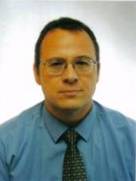
As a specialist in Interfaith Mediation, Mr. Ferrer Sanchez presents seminars at universities and negotiates between management and employees. Mr. Ferrer Sanchez has four degrees in social work, peace and conflict studies, and law and several certificates in management topics. In addition to working as a human resources manager, he is the Head of the Cabinet of Development and Social Action of the Municipal Patronage of Sports of the City Council of Granada (PMD). At present, Mr. Ferrer Sanchez also teaches U.S. students visiting Granada a course entitled, “Culture of Peace: Spain and the European Union and Political-Social Vision.” As a member of an UNESCO program in Andalucia, he gave presentations on ecology, religion, and interfaith dialogue. Mr. Ferrer Sanchez also collaborates with NGOs to carry out humanitarian projects among Saharawi refugees who have fled Western Sahara.
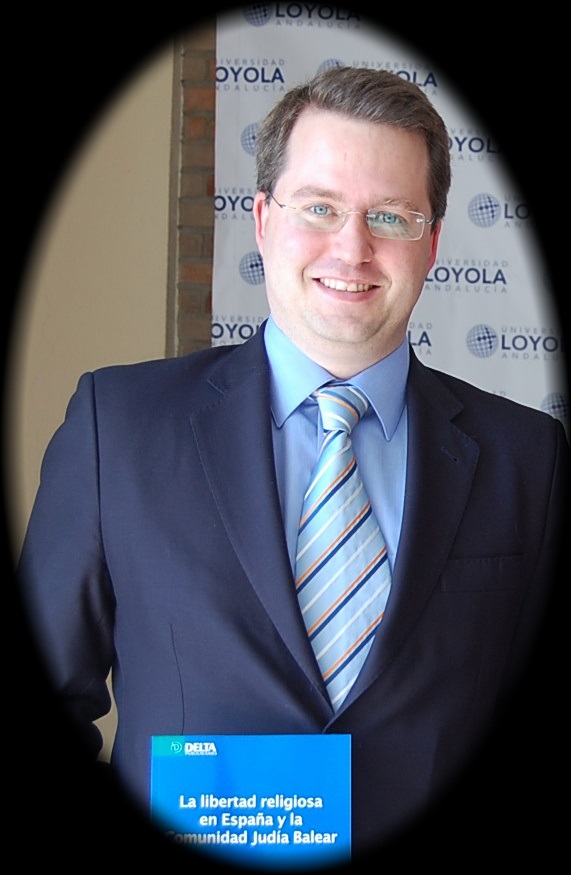
Marcos González Sánchez graduated with both an undergraduate and doctorate degree in law from the Universidad Complutense de Madrid (1999) and Universidad de Castilla-La Mancha (2002), respectively. Since 2007, has been a Full Professor of Ecclesiastic Law at the Universidad Autónoma de Madrid. He is a member of the "Freedom of Conscience and Law" Group (D-010) which is registered with the Registro de Grupos de Investigación reconocidos of the Universidad Autónoma de Madrid. He has been a lecturer and researcher at various foreign universities, including Bolonia, Buenos Aires, UC-Chile and the Instituto de Investigaciones Jurídicas-Universidad Nacional Autónoma de México. He has also been awarded various research grants and has participated and directed research projects financed by public institutions. He specializes in church-state relations. He is the director of the Instituto Metodológico de Derecho Eclesiástico del Estado (IMDEE) and the subdirector of the Revista Internacional Derecho y Religión.
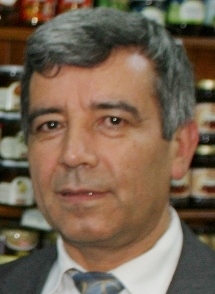
Erdogan Arslan is the Vice President of the Yozgat Platform, a non-governmental organization in the Yozgat Province of Turkey. He was graduated from Izmir/Narlidere Military Academy in 1980 as a sergeant. He also received his second degree in the school of Economics in Eskisehir Anatolia University in 1990. He served as a sergeant in many cities in Turkey such as Gaziantep, Kocaeli/Gebze, Kars/Sarikamis, Istanbul and Canakkale/Gelibolu. He retired in 2003. Later, he had interests in finances and investment and has been an advisor in equity trading. He is married and currently lives in Istanbul.
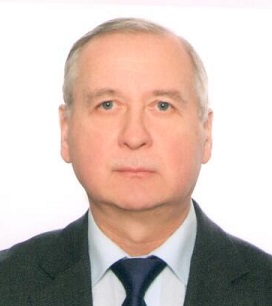
Judge Zagoldnyi was born in the village of Antoniny of Krasylivskyi district, Khmelnytsk Region. He began his career in 1973. After graduating in 1981 from the Ivan Franko National University of Lviv, he worked as a trainee at the Leninskyi District Court of the City of Lviv. In 1982 he began working as a people’s judge of the Rivnenskyi City People’s Court. From 1991–1995 he was a member of the Rivnenskyi Regional Court. In September 1995 he was elected as a Judge of the Supreme Court of Ukraine. He is a Merited Lawyer of Ukraine as well as the author of the Regulation of the Plenary Assembly of the Supreme Court of Ukraine. Judge Zagoldnyi was awarded Certificates of Honour of the Verkhovna Rada of Ukraine and the Cabinet of Ministers of Ukraine, the Certificate of Honour “For Faithfulness to Law” of the Supreme Court of Ukraine and the Certificate of Appreciation of the Head of the High Council of Justice of Ukraine.
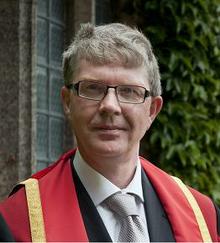
Malcolm D. Evans, OBE, is Professor of Public International Law at the University of Bristol. He is a member and Chair of the UN Subcommittee for the Prevention of Torture (the SPT) and currently is Vice Chair of the Meeting of Chairs of UN Human Rights Treaty Bodies. He is also a member of the Foreign Secretary’s Human Rights Advisory Group. From 2002 – 2012 he was a member of the OSCE ODIHR Advisory Council on the Freedom of Religion or Belief. He is currently General Editor of the International and Comparative Law Quarterly and Co-Editor in Chief of the Oxford Journal of Law and Religion. Major published works include: Religious Liberty and International Law in Europe (CUP, 1997), Preventing Torture (OUP, 1998), Protecting Prisoners (ed.) (OUP, 1999), Combating Torture in Europe (Council of Europe, 2002), Manual on the Wearing of Religious Symbols in Public Areas (Council of Europe/Brill, 2009), and The Optional Protocol to the UN Convention against Torture (OUP, 2011). He is also editor of International Law (OUP, 3rd ed., 2010) and Blackstone’s International Law Documents (OUP, 11th ed., forthcoming 2013).
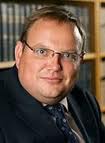
Mark Hill QC is a leading barrister with Chambers in London and specializes in litigation conerning religious matters in the domestic courts in the United Kingdom and at the European Court of Human Rights in Strasbourg: major cases include Eweida v UK, The Church of Jesus Christ of Latter-day Saints v UK (ECtHR), and Preston v President of Methodist Church Conference (UK Supreme Court). He is Honorary Professor at the Centre for Law and Religion, Cardiff University, Extraordinary Professor at the University of Pretoria, and Ecumenical Fellow in Canon Law at the Venerable English College in Rome. He sits as a judge in secular courts and those of the Church of England, including the judicial office of Chancellor of Europe. He was President of the European Consortium for Church and State Research in 2012. He is Convenor of the United Kingdom Interfaith Legal Advisors Network and Consultant Editor of the Ecclesiastical Law Journal. His publications include Ecclesiastical Law (3rd ed., 2007); English Canon Law (1998); Religious Liberty and Human Rights (2002); Jowitt’s Dictionary of English Law (2010); Religion and Law in the United Kingdom (2011); and Religion and Discrimination Law in the European Union (2012). He is a member of the Editorial Boards of the Oxford Journal for Law and Religion and the Revista General de Derecho Canónico y Derecho Eclesiástico del Estado.
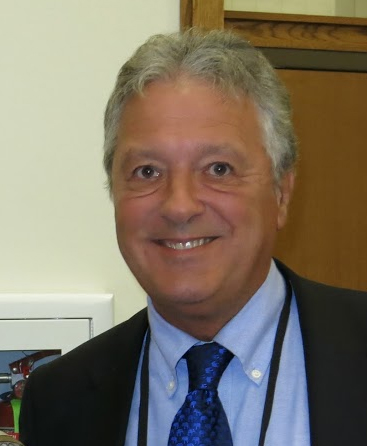
Dr. Don Horrocks has been Head of Public Affairs for the Evangelical Alliance since 2001. He also oversees the Evangelical Alliance’s Theology and Public Policy Advisory Commission and is a Director of the Coalition for Marriage. For 25 years Don held senior positions in commerce and management consultancy. He subsequently studied for a Doctorate in Systematic and Historical Theology and has published a number of books and reports. Don is a Baptist Minister and a Research Associate at the London School of Theology. He is married with three children.
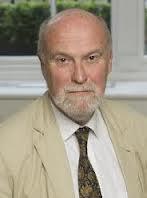
Ian Linden is Director of Policy at the Tony Blair Faith Foundation, formerly director of the Social Action Programme, Faiths Act, and an associate professor in the Study of Religion at the School of Oriental and African Studies (SOAS) in the University of London. He has published a number of books on religion in Africa and, recently, two major studies on faith and globalisation, A New Map of the World and Global Catholicism. He was for fifteen years director of the Catholic Institute for International Relations and was awarded the CMG for work for human rights in 2000. He is a member of the Christian-Muslim Forum of the UK, worked in interfaith dialogue with Shi’a leaders, in Iran and has acted as a DfID (UK government Department for International Development) consultant on matters of Faith and Development.
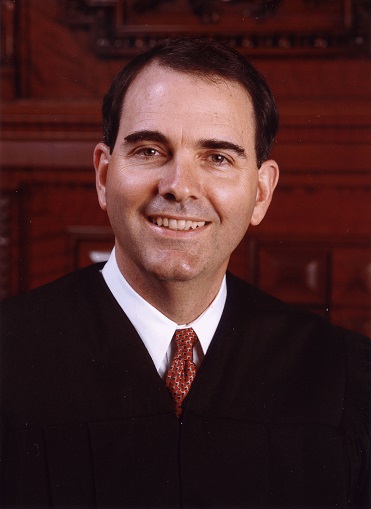
Jay S. Bybee is a judge on the United States Court of Appeals for the Ninth Circuit. He graduated Magna Cum Laude and with Highest Honors from Brigham Young University and earned his J.D., Cum Laude, from the J. Reuben Clark Law School. He served as law clerk to the Honorable Donald Russell of the U.S. Court of Appeals for the Fourth Circuit and was an associate in the Washington, D.C. office of Sidley & Austin. Judge Bybee joined the Department of Justice in 1984 and served at the White House from 1989 to 1991 as Associate Counsel to the President. In 1991, he joined the faculty of the Paul M. Hebert Law Center at Louisiana State University. In 1999, Judge Bybee joined the founding faculty of the William S. Boyd School of Law at the University of Nevada, Las Vegas. In 2001, he was appointed as Assistant Attorney General for the Office of Legal Counsel at the U.S. Department of Justice. On March 21, 2003, President Bush appointed Judge Bybee as a judge on the U.S. Court of Appeals for the Ninth Circuit.
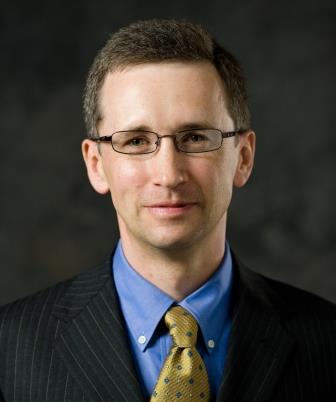
Mark Choate is a history professor at Brigham Young University, where he has taught since September 2001. He earned his bachelor of arts, master of arts, master of philosophy, and doctoral degrees in history at Yale University. Before graduate school, he worked for GE Capital’s corporate tax division. Professor Choate has lectured at Yale, Harvard, Leiden University, the City University of New York, and the University of California at Los Angeles, and has participated upon invitation to conferences in England, Germany, Senegal, and Switzerland. He has published dozens of articles and reviews in the fields of diplomatic history, international migration, African studies, and European history, and has received many prizes, awards, and fellowships for teaching and research. Professor Choate’s book Emigrant Nation: The Making of Italy Abroad (Harvard Press, 2008), won the Council for European Studies Book Award and the Marraro Prize from the American Catholic History Association. He is a Fellow of the Royal Historical Society, London, and the Società Italiana per lo Studio della Storia Contemporanea. Choate is a lieutenant colonel in the United States Army Reserve, having served in the Army for twenty-four years, including service in Afghanistan, Korea, Kuwait, Kyrgyzstan, Italy, and Slovakia.
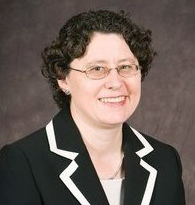
As Associate Director of the International Center for Law and Religion Studies, Elizabeth Clark has co-organized and taken part in dozens of conferences and academic projects with other scholars and with government leaders from around the world. She has from the beginning played a major role in organizing the Annual International Law and Religion Symposium at Brigham Young University. She has taken part in drafting commentaries and legal analyses of pending legislation and developments affecting religious freedom, and has assisted in drafting amicus briefs on international religious freedom issues for the U.S. Supreme Court. Before joining the Center, Professor Clark was an associate in the Washington, D.C., office of Mayer, Brown & Platt, where she was a member of the Appellate and Supreme Court Litigation Group. Professor Clark also clerked for Judge J. Clifford Wallace on the U.S. Court of Appeals for the Ninth Circuit. Professor Clark graduated summa cum laude from the BYU Law School, where she was Editor-in-Chief of the BYU Law Review. Drawing on her multilingual talents in Russian, Czech, German and French, Professor Clark has been active in writing and lecturing on church-state and comparative law topics. She has taught classes on Comparative Law, Comparative Constitutional Law, International Human Rights, and European Union law at the J. Reuben Clark Law School at Brigham Young University. She has published numerous articles and chapters on church-state issues and has been an associate editor of three major books: Facilitating Freedom of Religion and Belief and two books on law and religion in post-Communist Europe. Professor Clark has also testified before Congress on religious freedom issues.
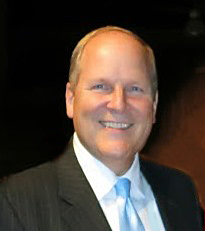
Gary Doxey, former Managing Director of the International Center for Law and Religion Studies, rejoined Center in 2009 after three years of service as president of the Mexico City South Mission of The Church of Jesus Christ of Latter-day Saints. In April 2011 Professor Doxey was called as an Area Authority Seventy of the Church. Before joining the law school, Professor Doxey served under Utah Governor Olene S. Walker as chief of staff – the state’s top appointed official, head of the cabinet, and chief operating officer of the executive branch. Prior to that, he served six years as general counsel to Utah Governor Michael O. Leavitt. Professor Doxey has spent much of his career in Utah state government, serving as deputy commissioner of financial institutions and as associate general counsel to the Utah Legislature. He is also a professor of history at Brigham Young University and has taught at the University of Utah. He spent his early legal career as a commercial law practitioner and was a judicial clerk for the United States Bankruptcy Court for the District of Utah. He has a PhD from Cambridge University and a JD from BYU. He speaks or reads several languages and is the author of many scholarly publications. In January 2011 he was named chair of the Center’s Development Committee.

Anthony Gill is a professor of political science at the University of Washington, a Distinguished Senior Fellow at Baylor University’s Institute for Studies of Religion, and a Senior Research Fellow at Georgetown University’s Berkley Center for Religion, Peace, & World Affairs. He is the creator and host of Research on Religion (www.researchonreligion.org), a free weekly podcast series that interviews scholars on the topic of religion. His most recent book is The Political Origins of Religious Liberty (Cambridge University Press) and he was the 1999 recipient of the UW’s Distinguished Teaching Award. He likes camping, target shooting, martial arts, and his favorite color is blue. Go Huskies!
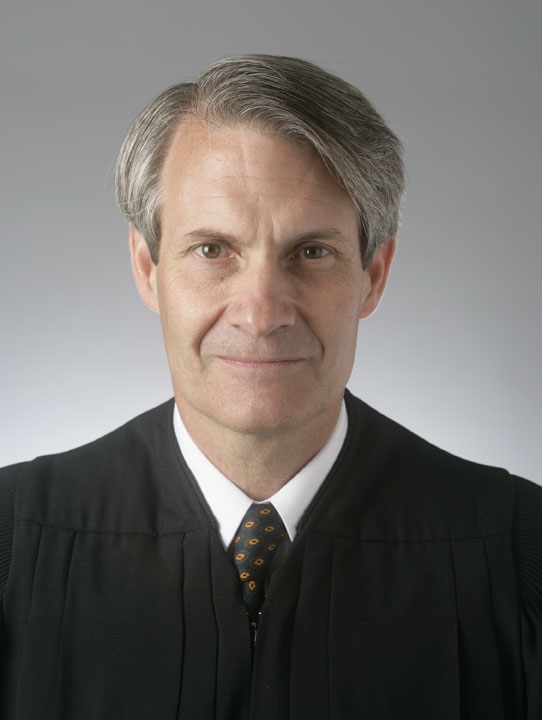
Judge Griffith was appointed to the United States Court of Appeals in June 2005. Prior to his appointment, Judge Griffith was Senate Legal Counsel of the United States, the chief legal officer of the United States Senate; General Counsel to the Advisory Commission on Electronic Commerce, a congressional commission created to study the interplay between tax policy and electronic commerce; and a member of the United States Secretary of Education’s Commission on Opportunity in Athletics, which was charged with examining the role of Title IX in intercollegiate athletics. After graduation from the University of Virginia School of Law in 1985, Judge Griffith was engaged in private practice for four years in Charlotte, North Carolina, where he was an associate at Robinson, Bradshaw and Hinson, and for seven years in Washington, DC, where he was first an associate and then a partner at Wiley, Rein and Fielding. In private practice, his primary areas of emphasis were commercial and corporate litigation. From 2000 until his appointment to the United States Court of Appeals, Judge Griffith was Assistant to the President and General Counsel of Brigham Young University in Provo, Utah. Judge Griffith is a member of the Executive Committee of the American Bar Association's Central European and Eurasian Law Initiative.
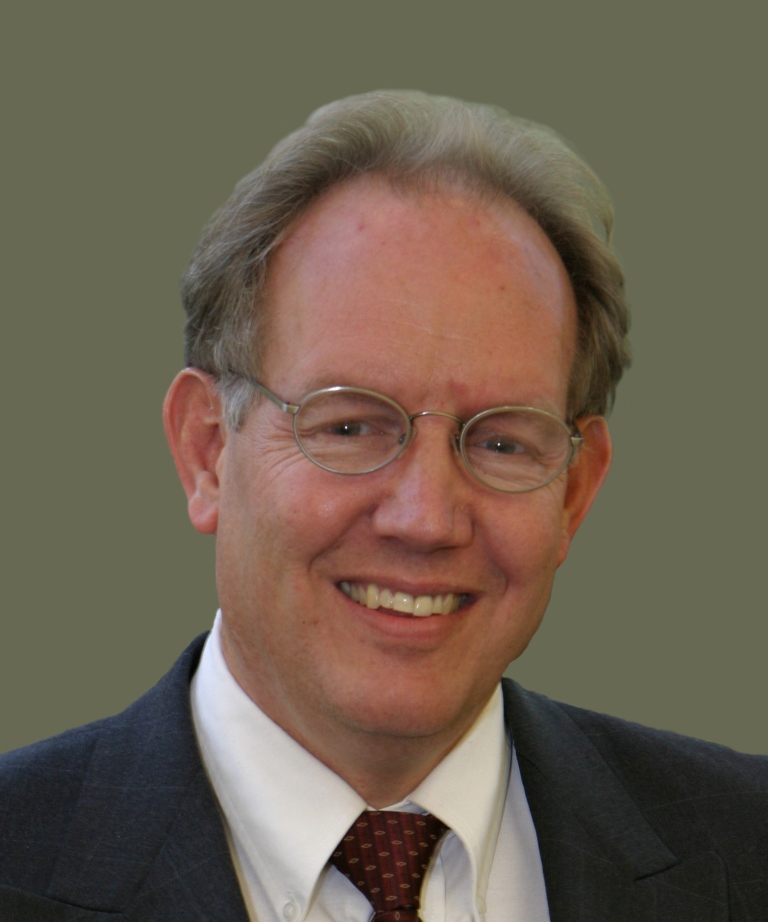
David Kirkham, JD, PhD, is Senior Fellow for Comparative Law and International Policy at the BYU International Center for Law and Religion Studies, as well as an adjunct faculty member of the Law School and the BYU Department of Political Science. Prior to coming to the Law School in 2007, David served as Associate Dean and Professor of International Politics and Democratic Studies at the George C. Marshall European Center for Security Studies in Garmisch-Partenkirchen, Germany. He has also served as Director of International Plans and Programs, Director of International History, and Associate Professor of History at the United States Air Force Academy, and as a Senior Humanitarian Affairs Officer at the United Nations Office for the Coordination of Humanitarian Affairs in Geneva, Switzerland. David and his wife Judy are the parents of eight children and now make their home in Orem, Utah.
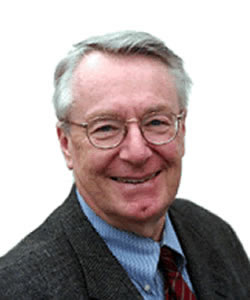
David Little retired in 2009 as Professor of the Practice in Religion, Ethnicity, and International Conflict at Harvard Divinity School, and as an Associate at the Weatherhead Center for International Affairs at Harvard University. He is now a research fellow at the Berkley Center for Religion, Peace & World Affairs at Georgetown University. Until the summer of 1999, he was Senior Scholar in Religion, Ethics and Human Rights at the United States Institute of Peace in Washington, DC. From 1996-1998, he was a member of the Advisory Committee to the State Department on Religious Freedom Abroad. Little is co-author with Scott W. Hibbard of the USIP publication, Islamic Activism and U.S. Foreign Policy (1997). Little is author of two of the volumes in the USIP series on religion, nationalism, and intolerance (RNI), Ukraine: Legacy of Intolerance (1991), and Sri Lanka: The Invention of Enmity (1994). The RNI conference report on Tibet, Sino-Tibetan Coexistence: Creating Space for Tibetan Self-Direction, written by Little and Hibbard, also appeared in 1994. He has edited two recently published volumes, Religion and Nationalism in Iraq: A Comparative Perspective (2007), with (Donald K. Swearer), and Peacemakers in Action: Profiles of Religion in Conflict Resolution (2007). In the past five years, Little has published a number of articles on religion and human rights, the history of rights and constitutionalism, and religion and peace, and is working on a collection of essays in those fields.
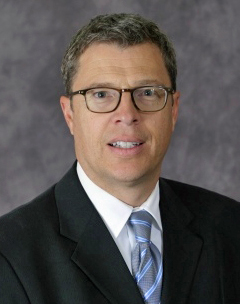
Brett G. Scharffs is Associate Dean for Research and Academic Affairs of Brigham Young University's J. Reuben Clark Law School, where he is Francis R. Kirkham Professor of Law and Associate Director of the International Center for Law and Religion Studies. His teaching and scholarly interests include comparative and international law and religion, jurisprudence and adjudication, and international business law. Professor Scharffs is a graduate of Georgetown University, where he received a BSBA in international business and an MA in philosophy. He was a Rhodes Scholar at Oxford University, where he earned a BPhil in philosophy. He received his JD from Yale Law School, where he was Senior Editor of the Yale Law Journal. Professor Scharffs was a law clerk on the U.S. Court of Appeals, D.C. Circuit, and worked as a legal assistant at the Iran-U.S. Claims Tribunal in The Hague. Before teaching at BYU, he worked as an attorney for the New York law firm, Sullivan & Cromwell. He has previously taught at Yale University and the George Washington University Law School, and is a visiting professor each year at Central European University in Budapest. In his 16-year academic career, Professor Scharffs has written more than 50 articles and book chapters, and has made over 150 scholarship presentations in 20 countries. His casebook, Law and Religion: National, International, and Comparative Perspectives, co-written with his colleague, W. Cole Durham, Jr., was published by Aspen / WoltersKluwer in 2010, second edition in preparation.
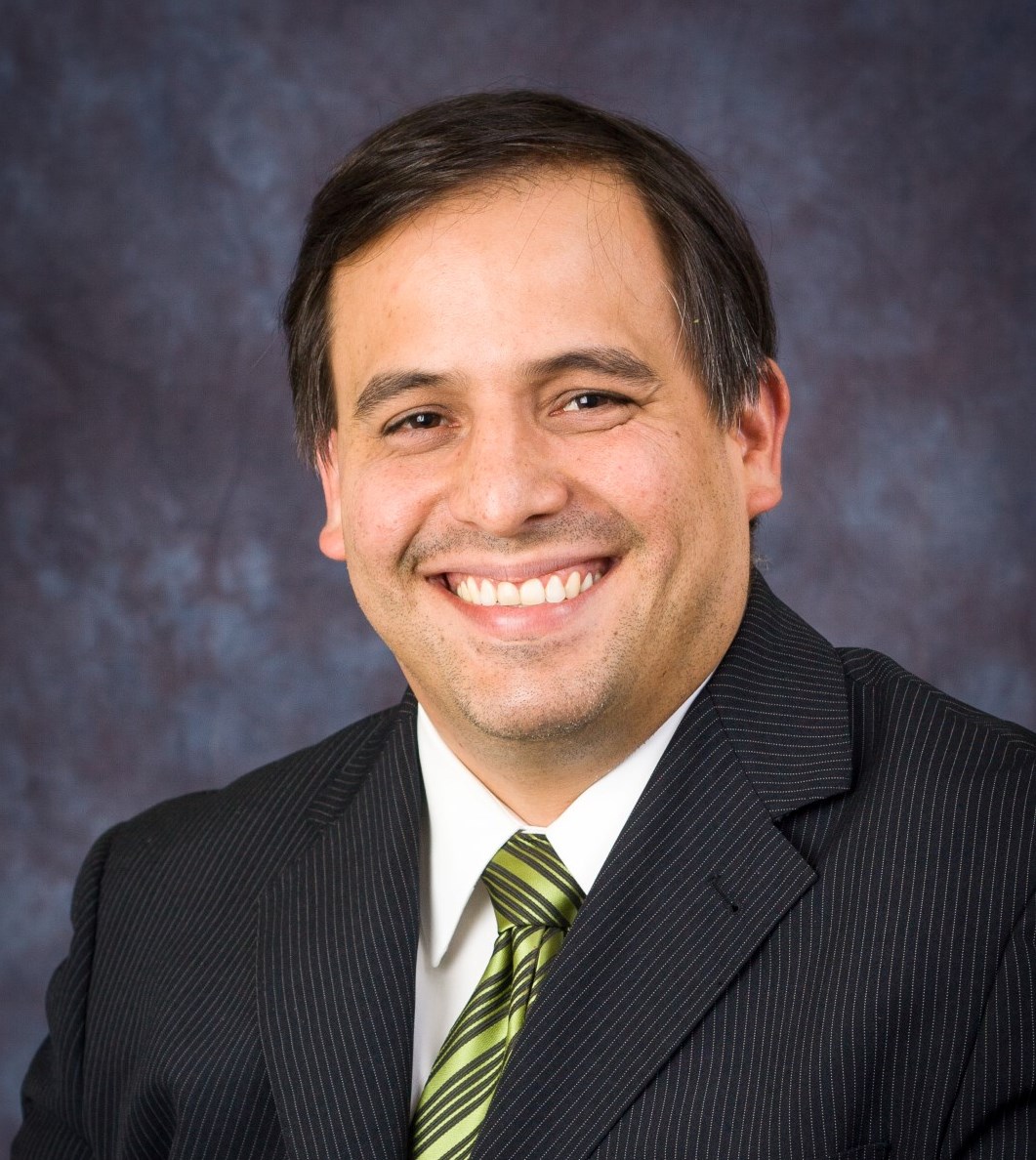
Victor Alvarez is the Director General of Centro de Estudios Administrativos (Administrative Studies Center). Mr. Alvarez is a lawyer with more than 12 years of professional experience. He specializes in constitutional and administrative law.
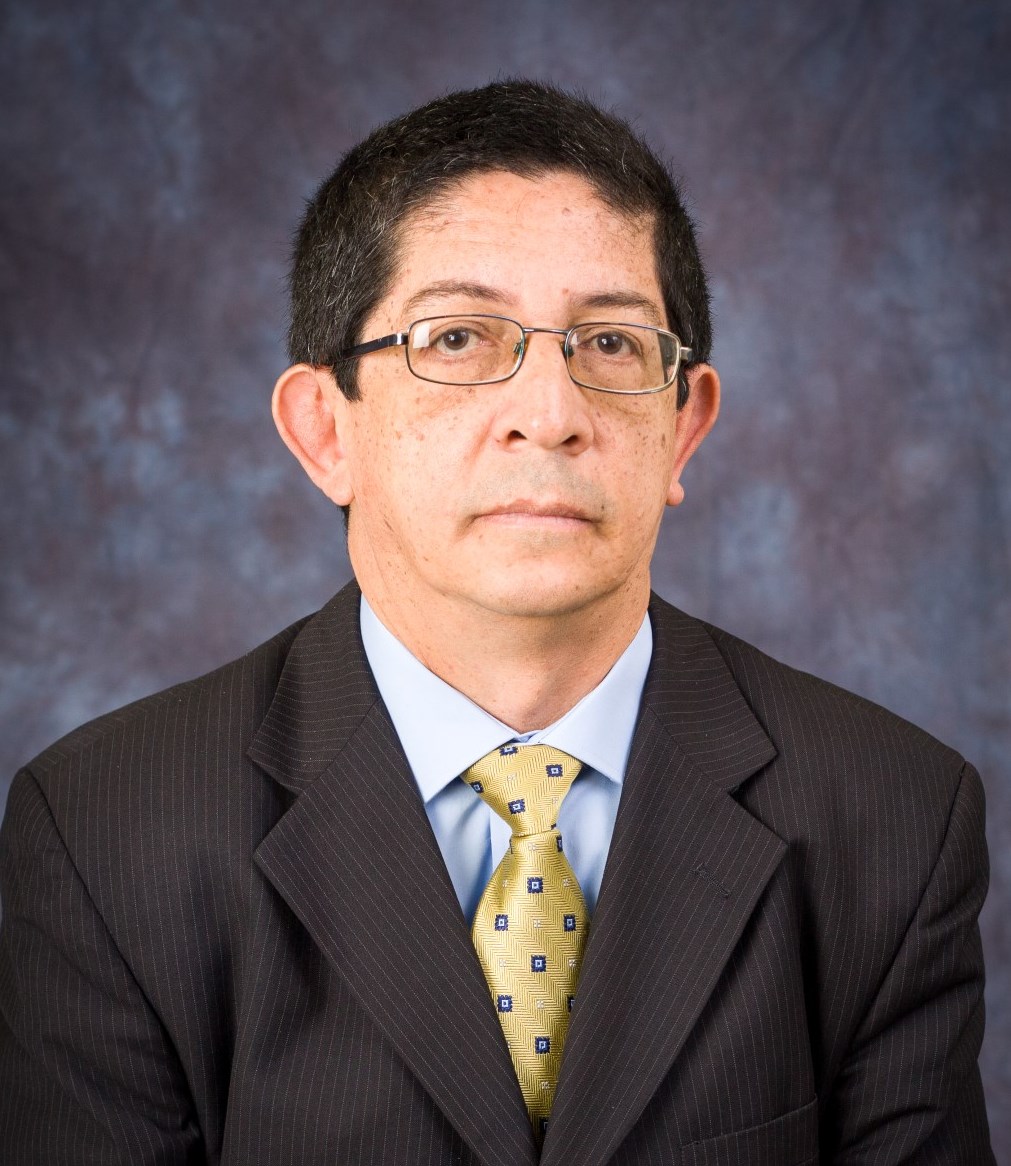
Dr. Yoel Rivas, attorney, Yoel Rivas Martinez law firm. He is a lawyer with more than 34 years of professional experience. He has been a partner of important law firms in Venezuela such as Baker & McKenzie and currently owns his own law firm. He has also been professor of law at the Catholic University Andres Bello from 1985 until now.
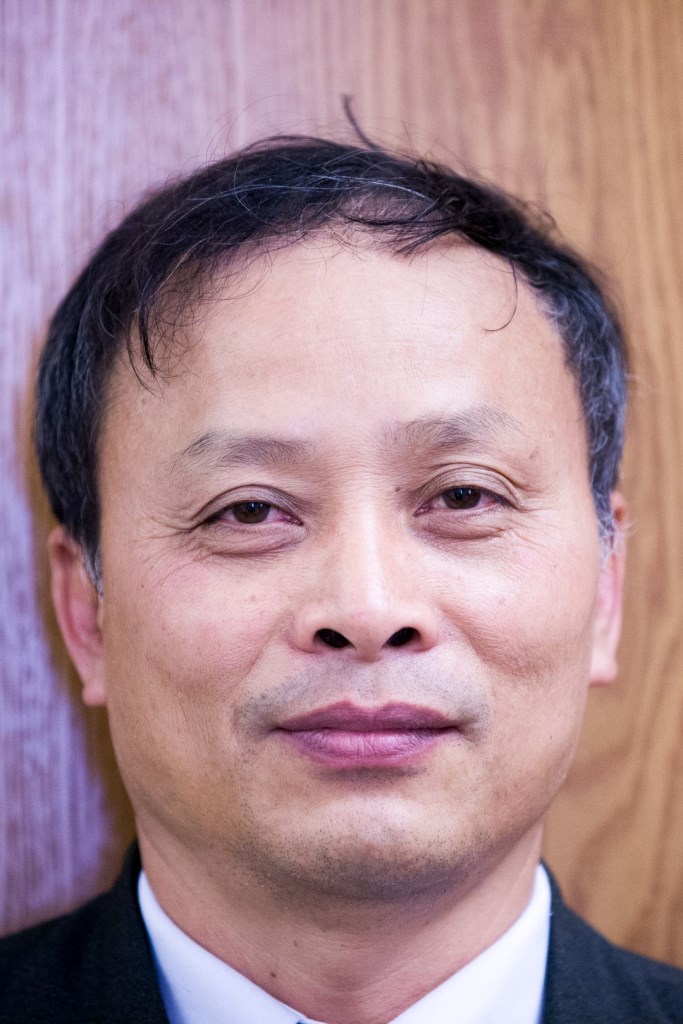
Vu Thanh Son was born 27 March 1959. He completed training at the university level and now holds the rank of Colonel. He is the Vice-President of the Security Police Department of Hanoi, Vietnam. His primary duties are advising the police chief about the religions, religious organizations, and similar matters in Hanoi.
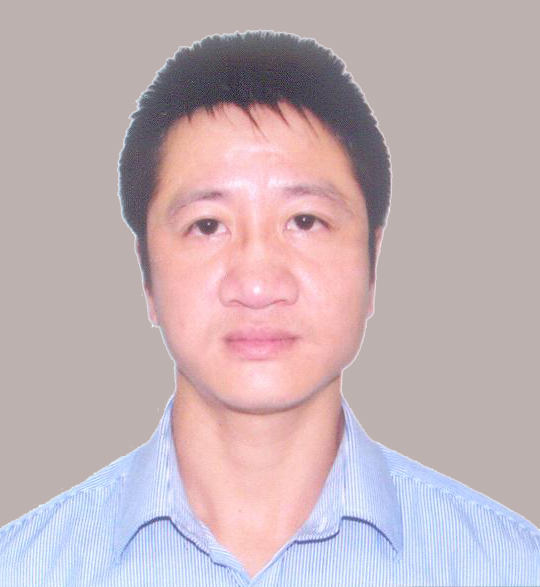
Hoang The Nguyen is a Religious Specialist in the Social Security Bureau in the Ministry of Public Security. He is a graduate of the Academy of the Peoples’ Security (1998 – 2003) and has worked at the Department of Social Security, Ministry of Public Security, as a specialist in religion since October 2003. He is an advisor in the Department of Religion and does research work in the development of religion in Vietnam. He holds the rank of Captain.
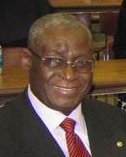
Justice Annel Silungwe has received a law degree from The Inner Temple, London, United Kingdom and a Master of Laws (LLM) from the University of Zambia. He has worked as a State Counsel, Minister of Justice, and as an Attorney General. He is Chairman of the Judicial Service Commission; Chief Justice, Zambia; Court of Appeal Judge, Seychelles; Judge, High Court/Supreme, Namibia; Director, Commonwealth Judicial Education Institute, Halifax, Canada; Legal Expert, UNESCO; Chairperson, Bible Society of Zambia; and was the past District Governor, Rotary International.
